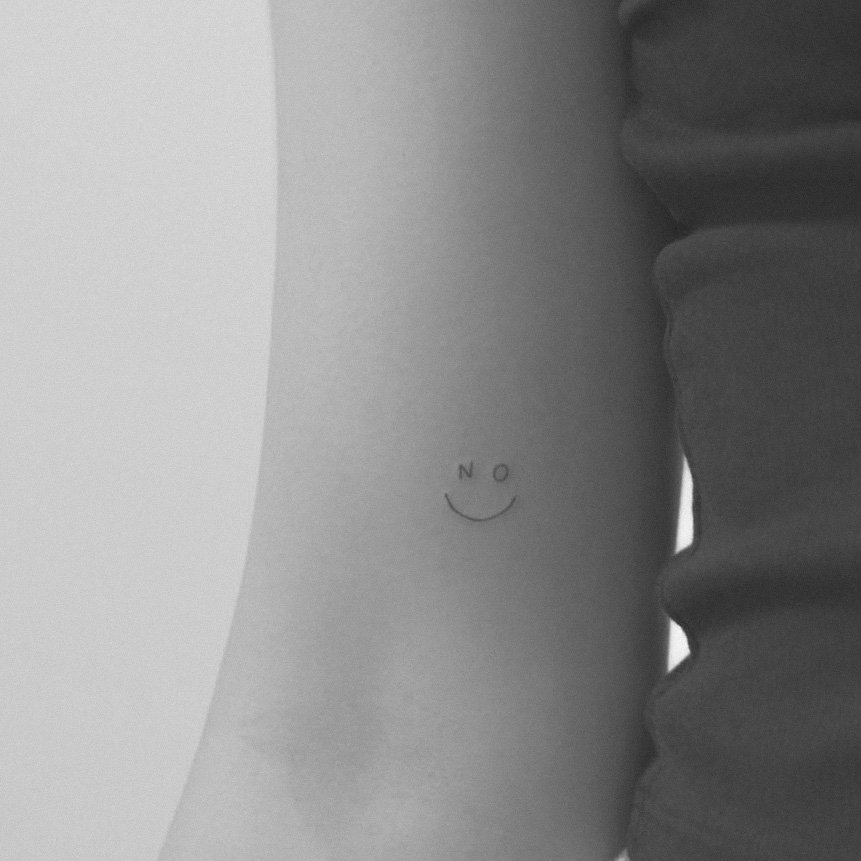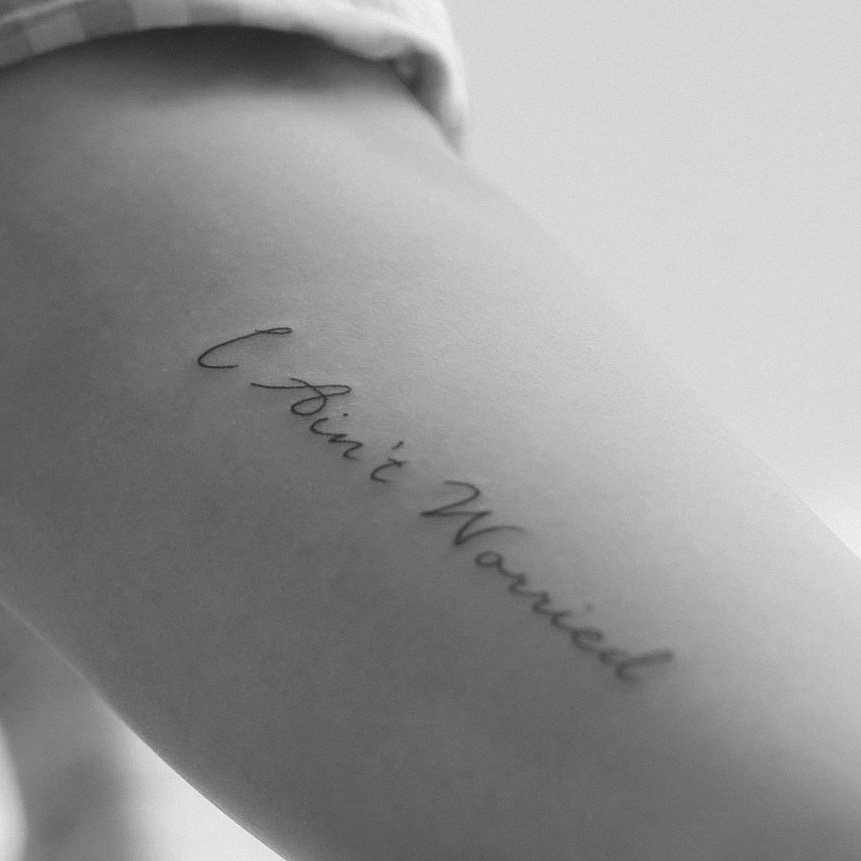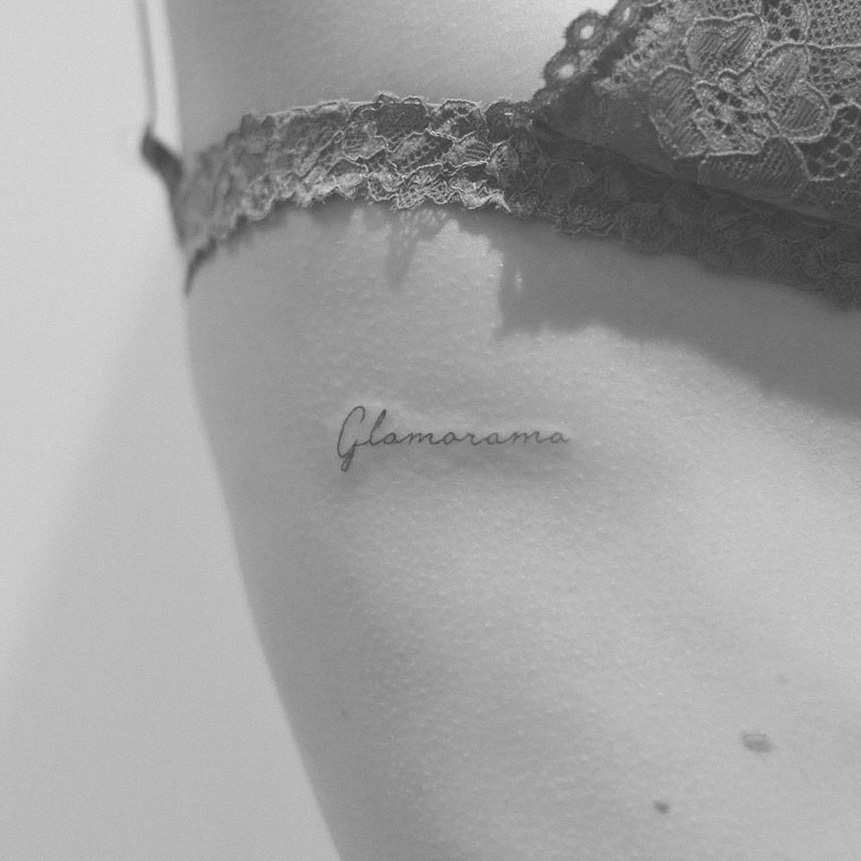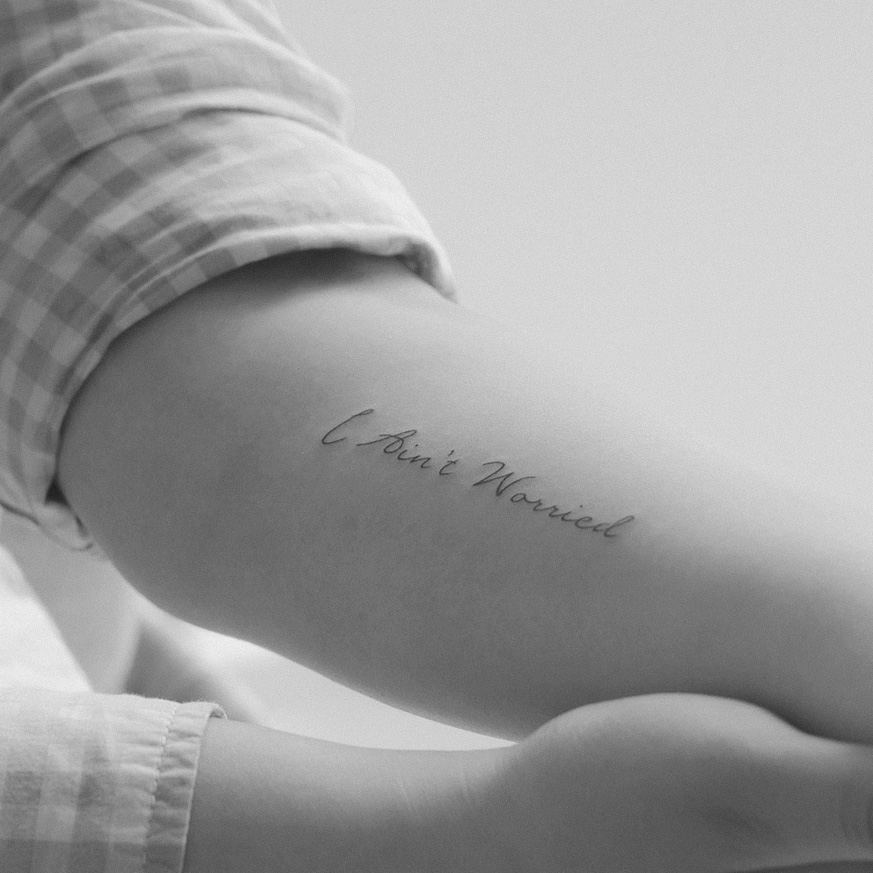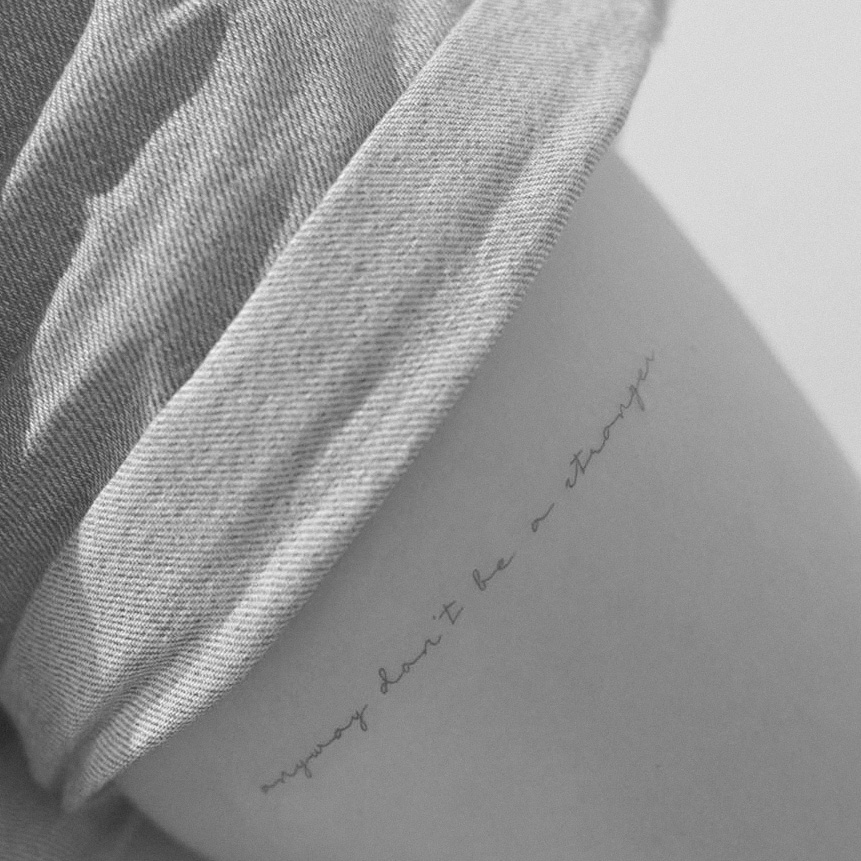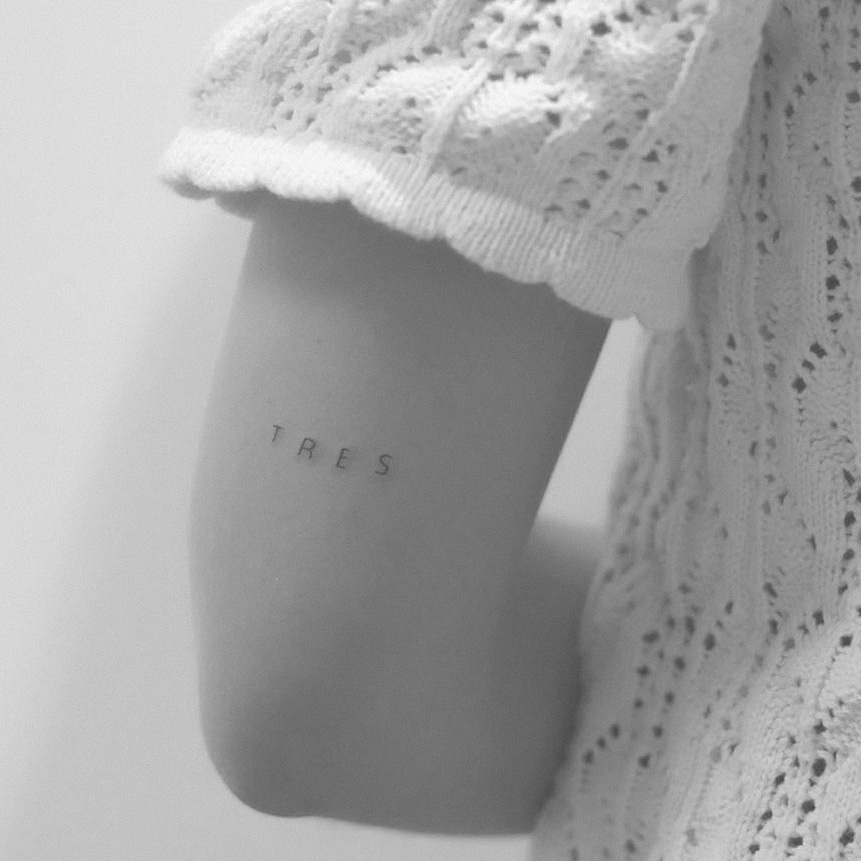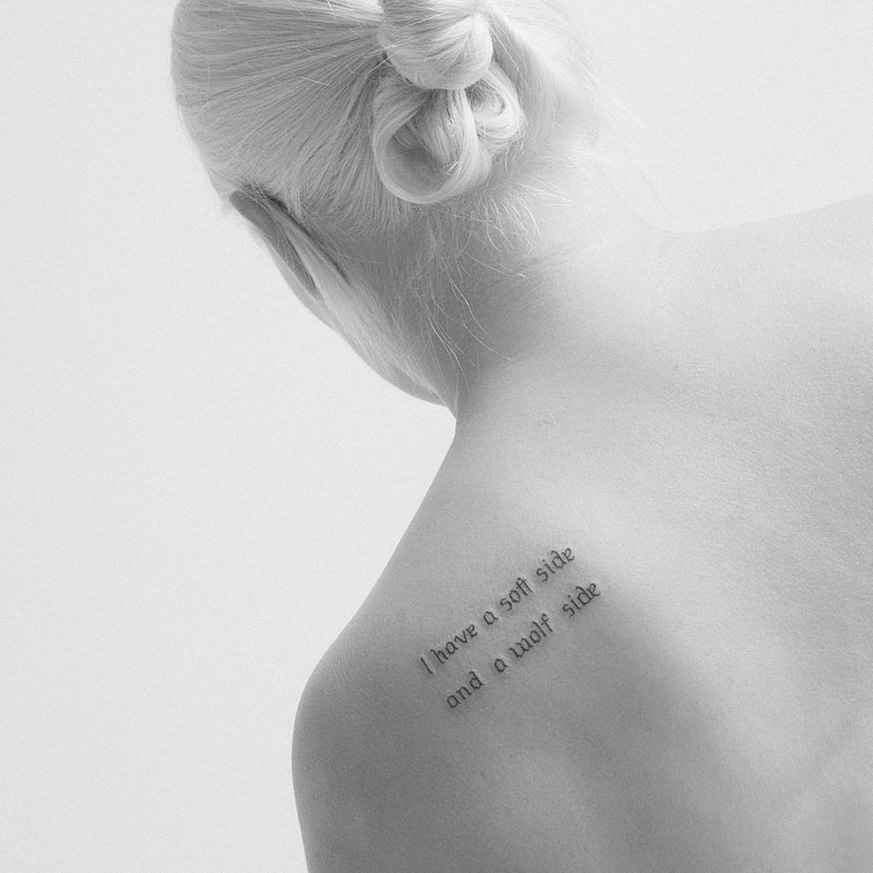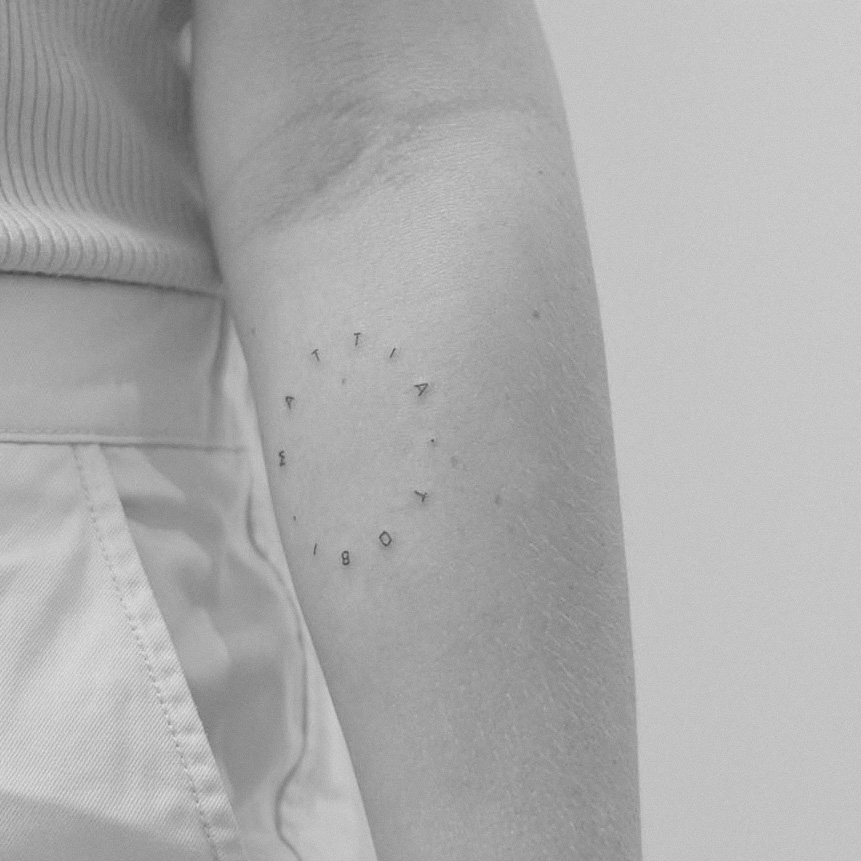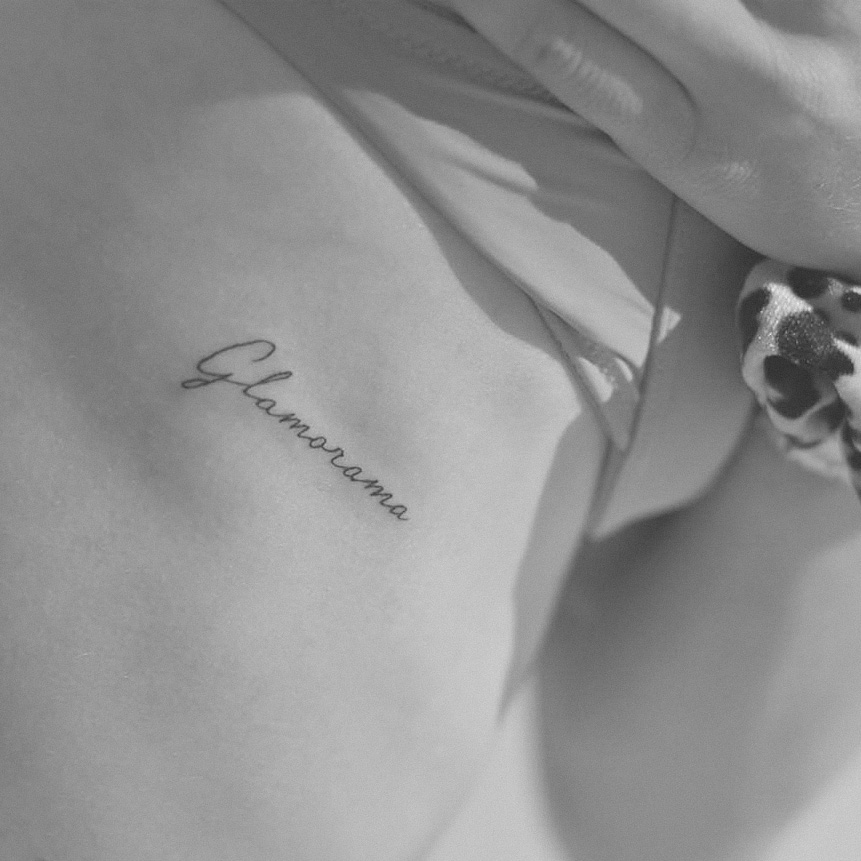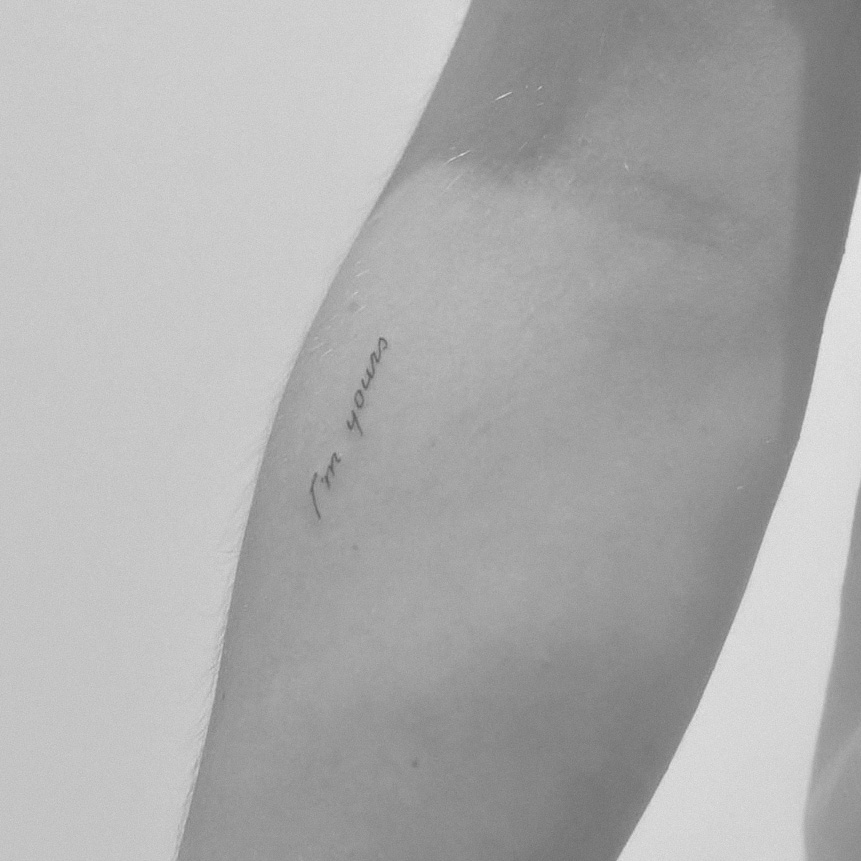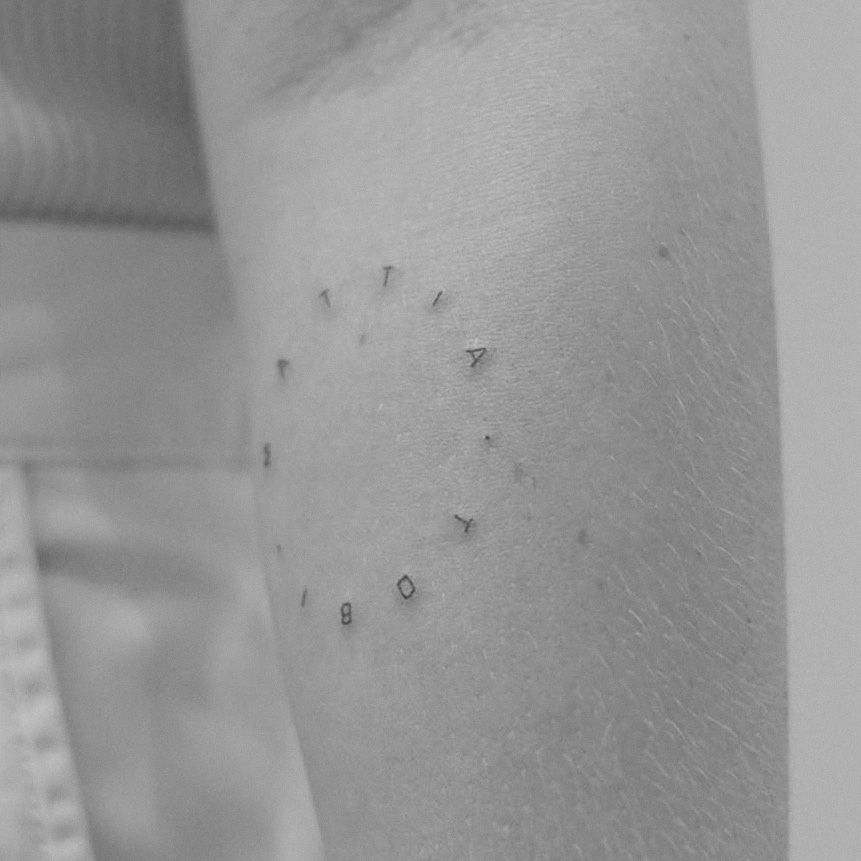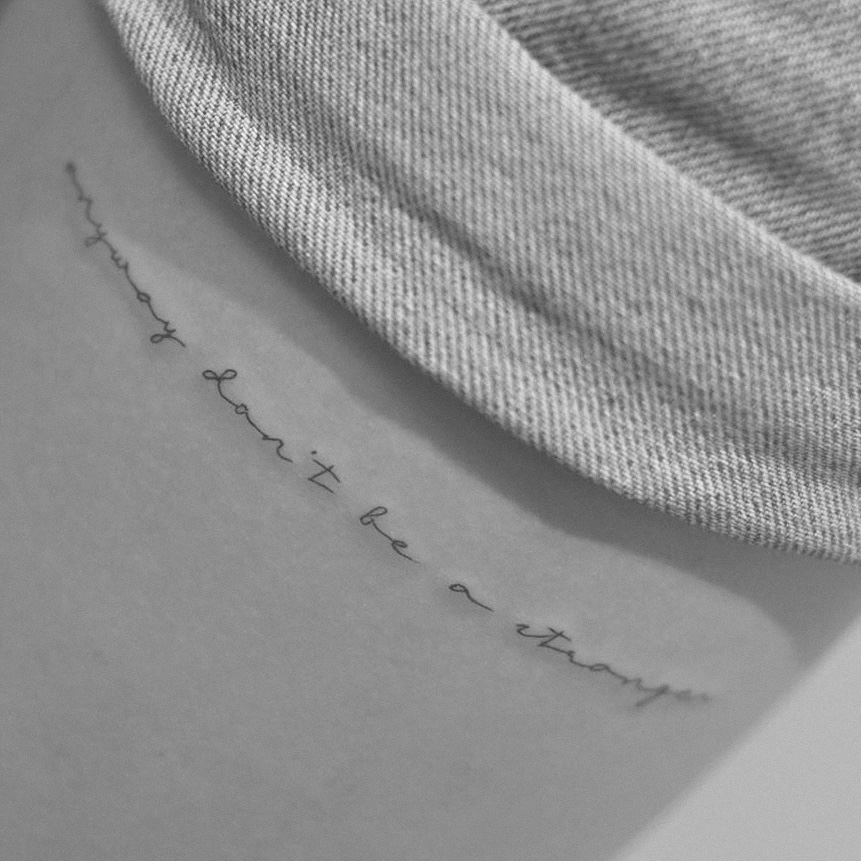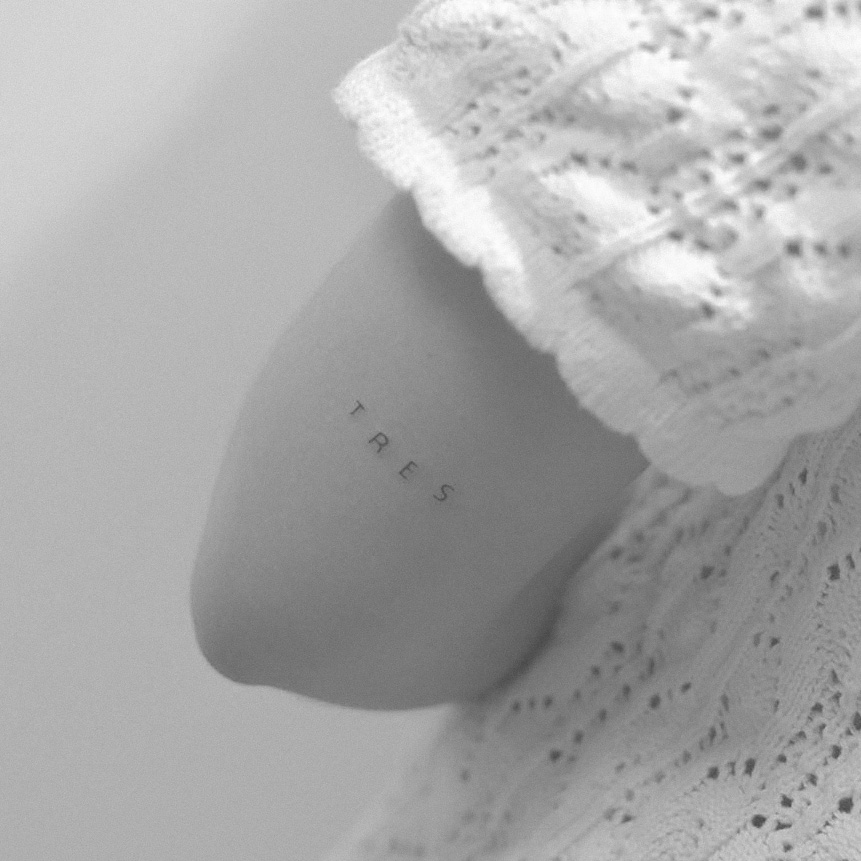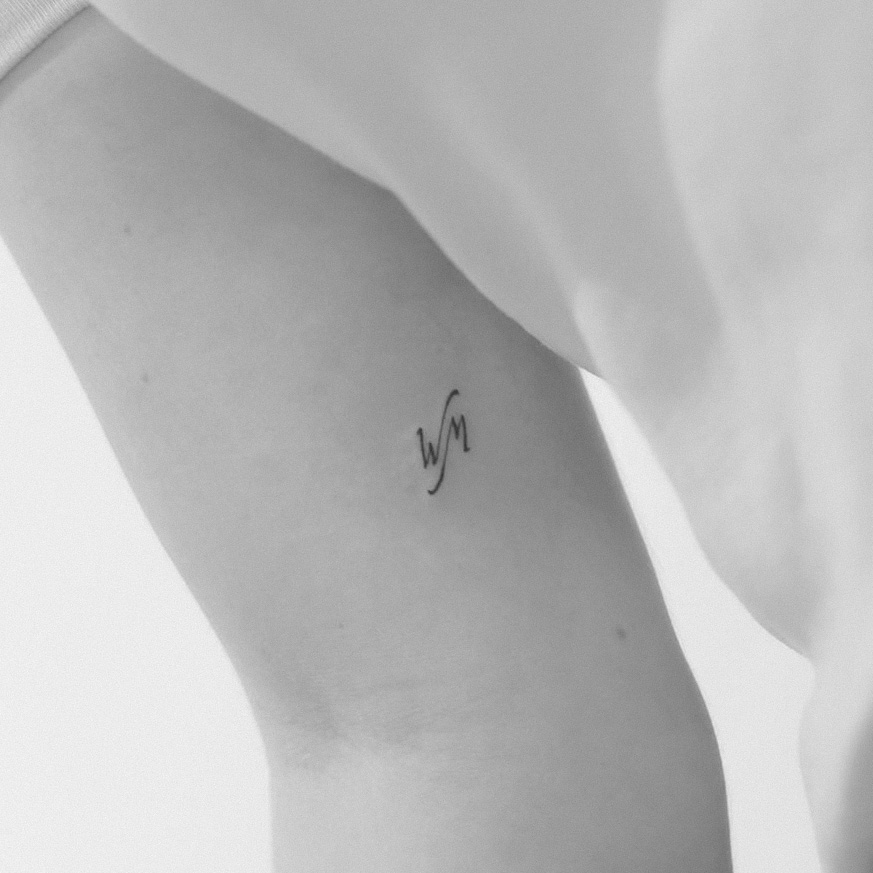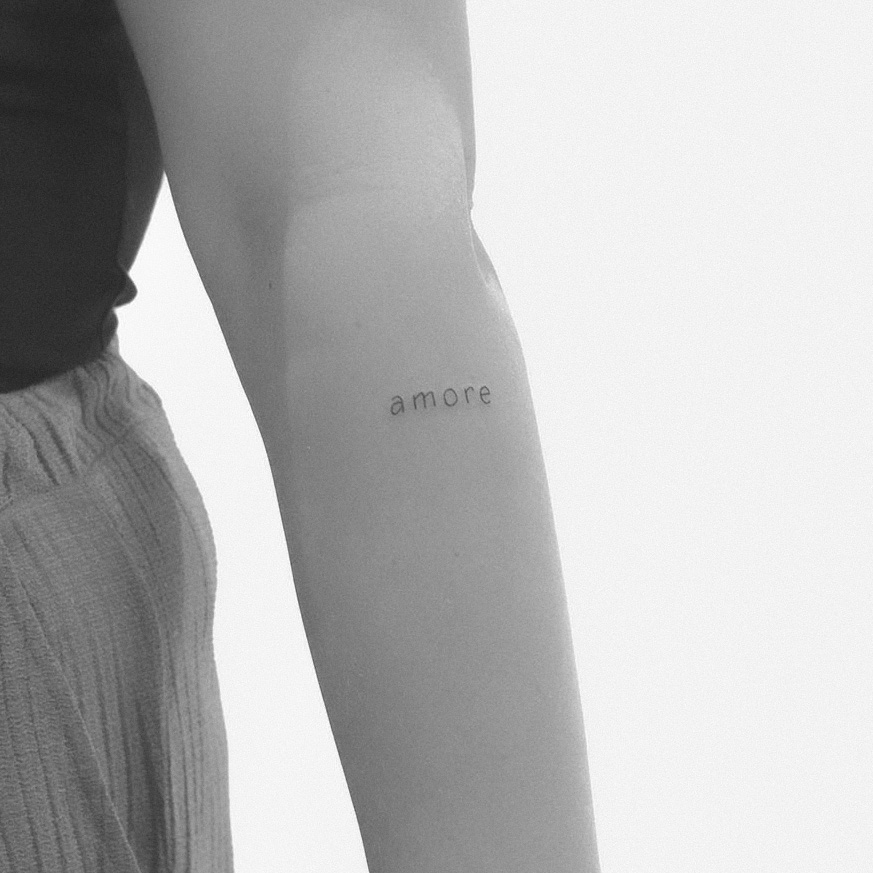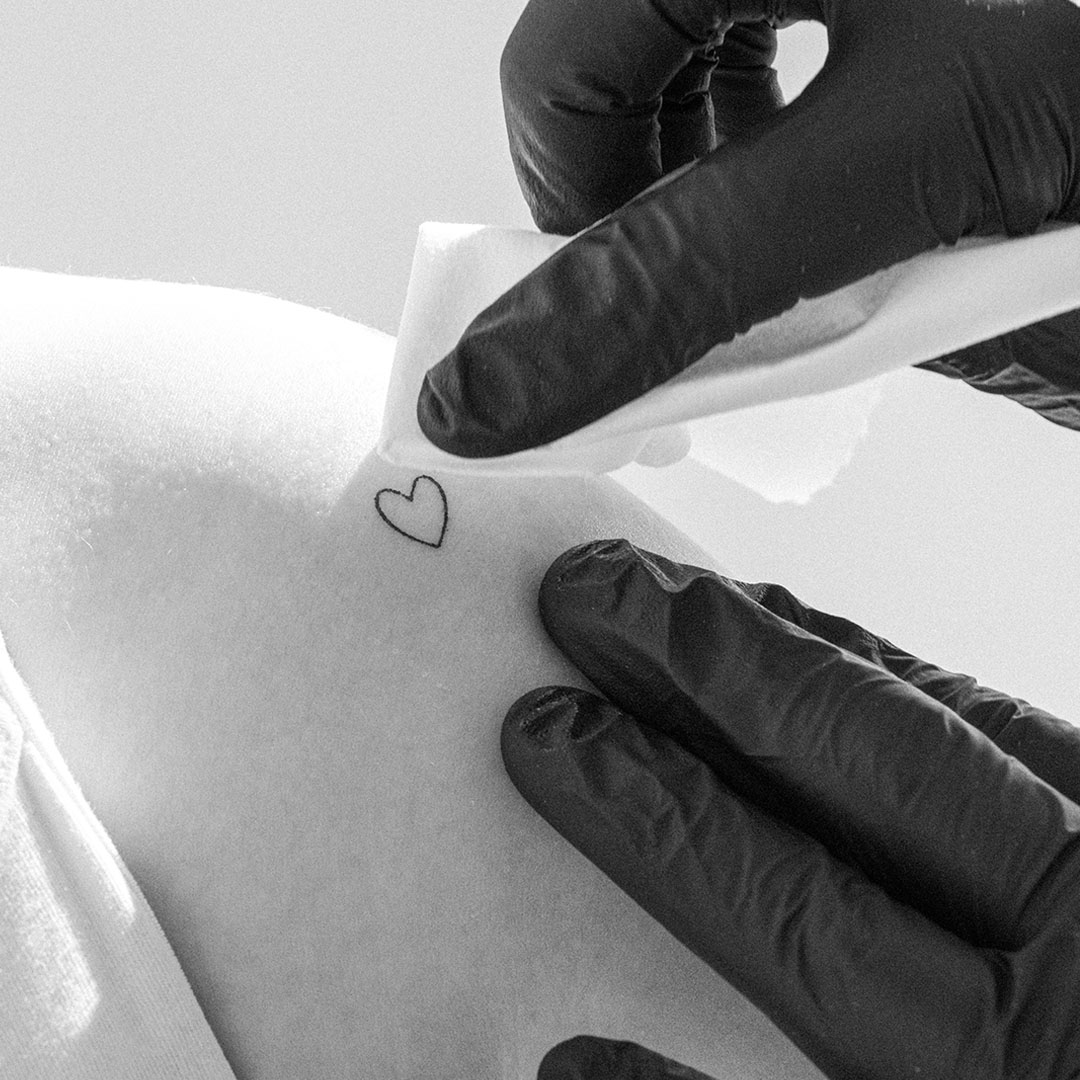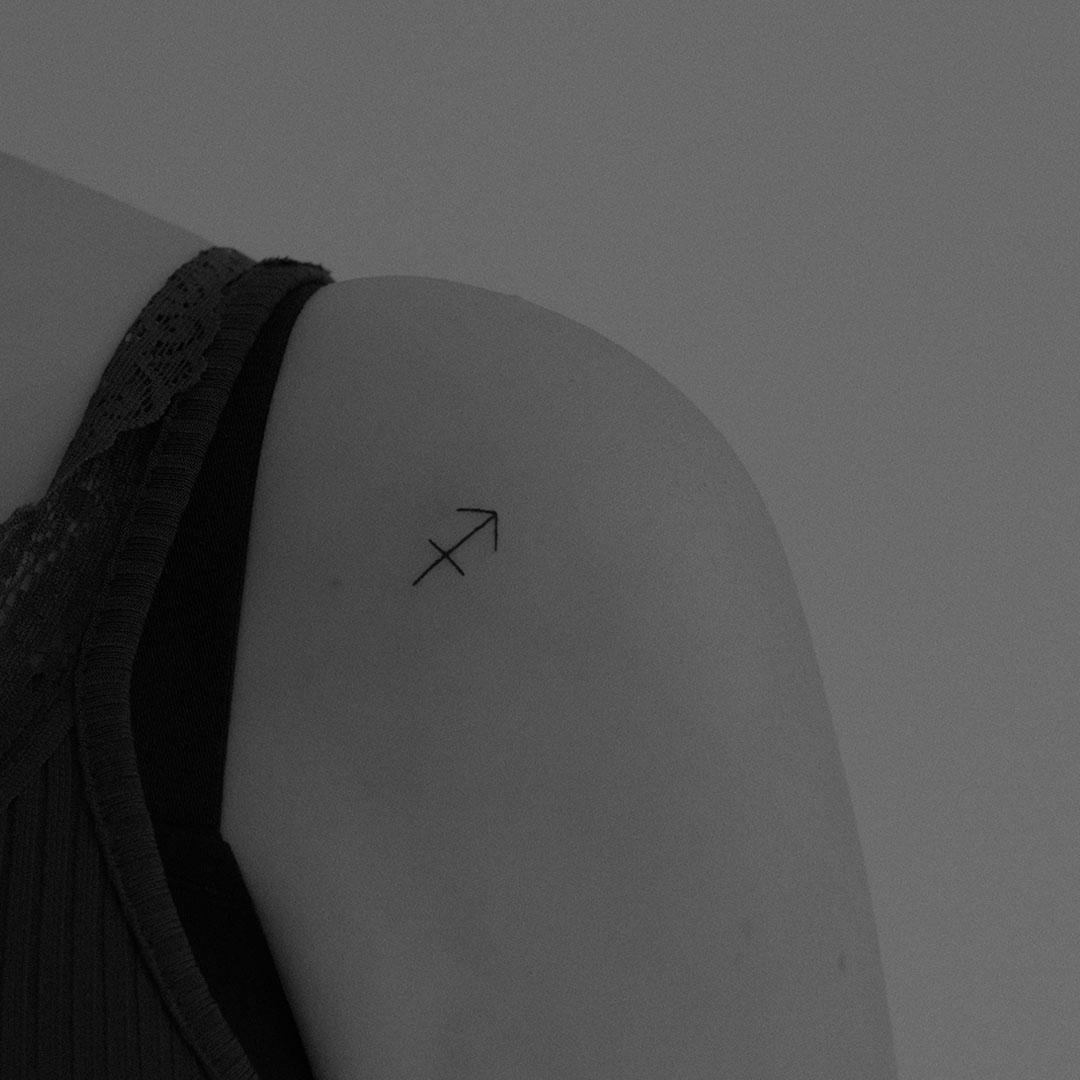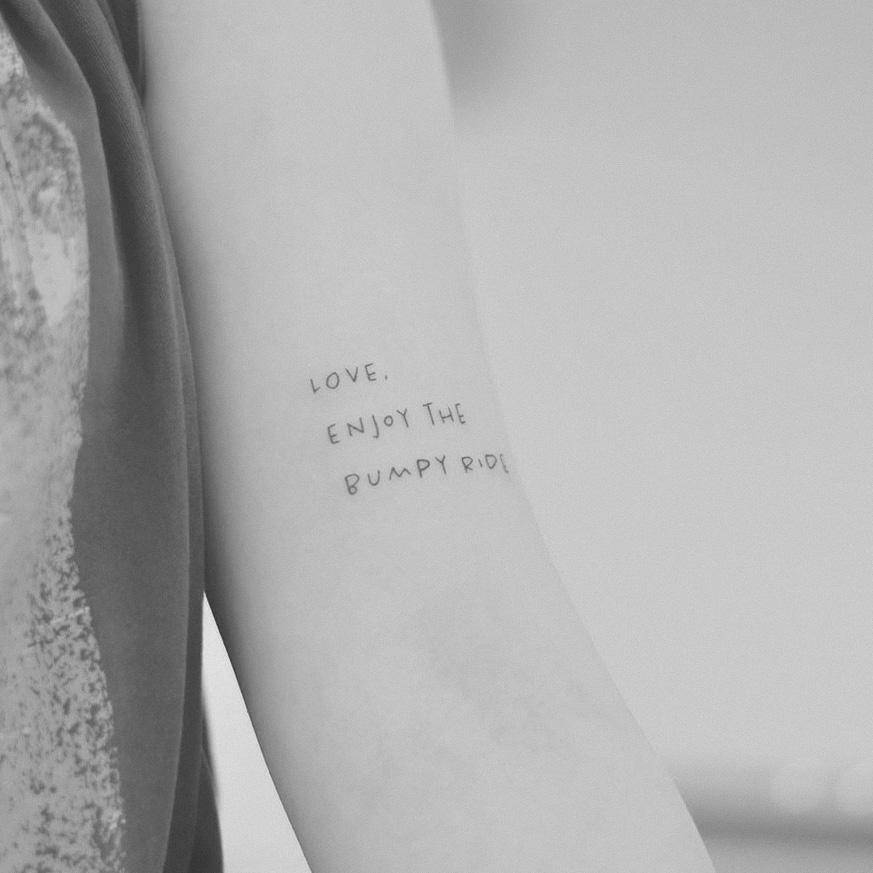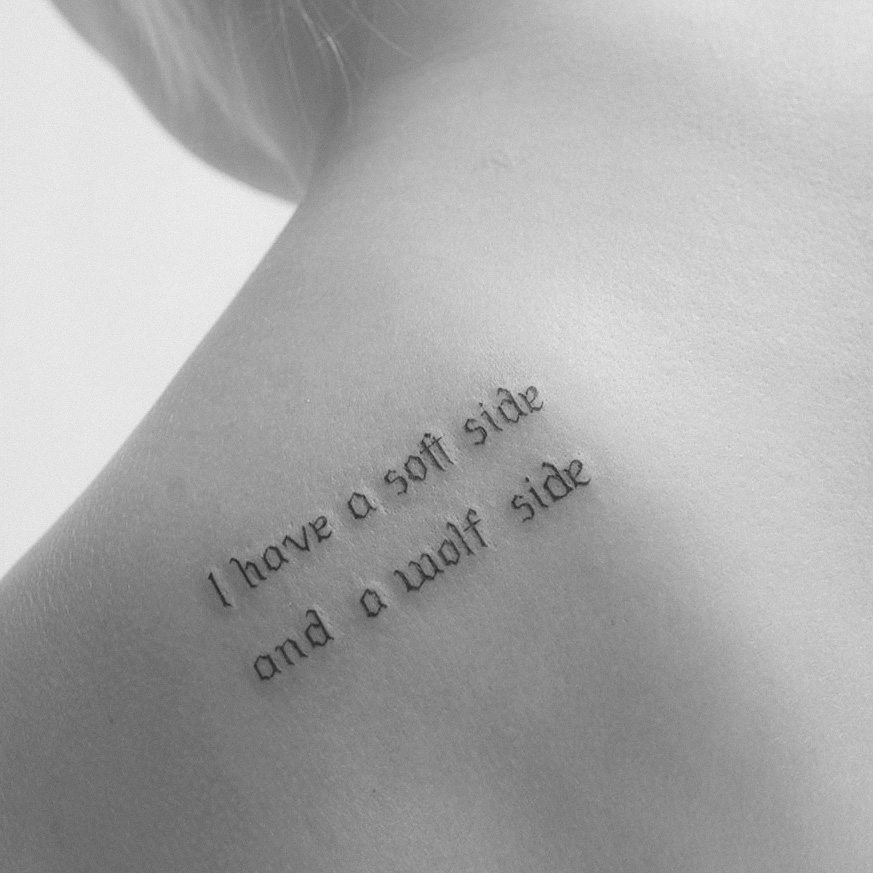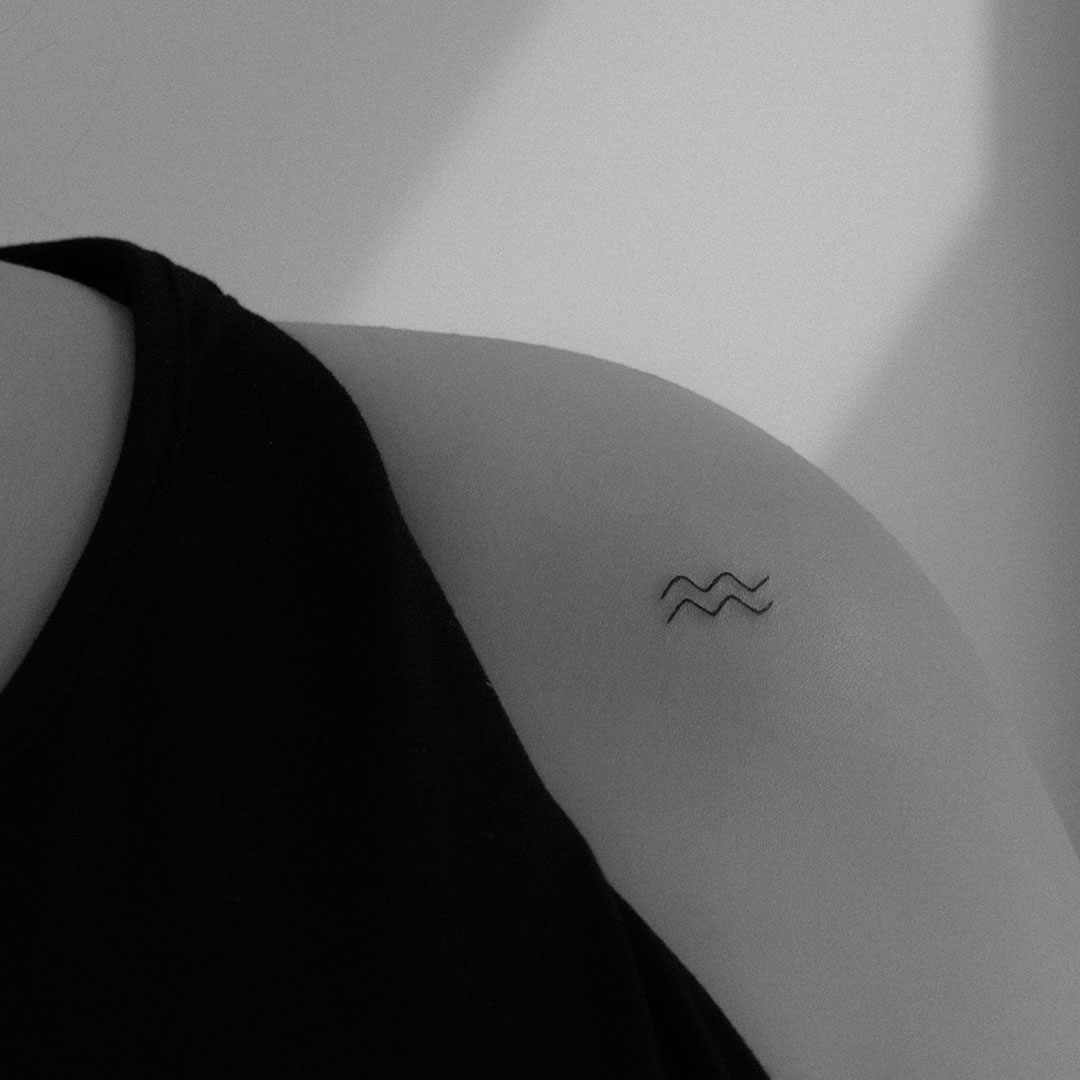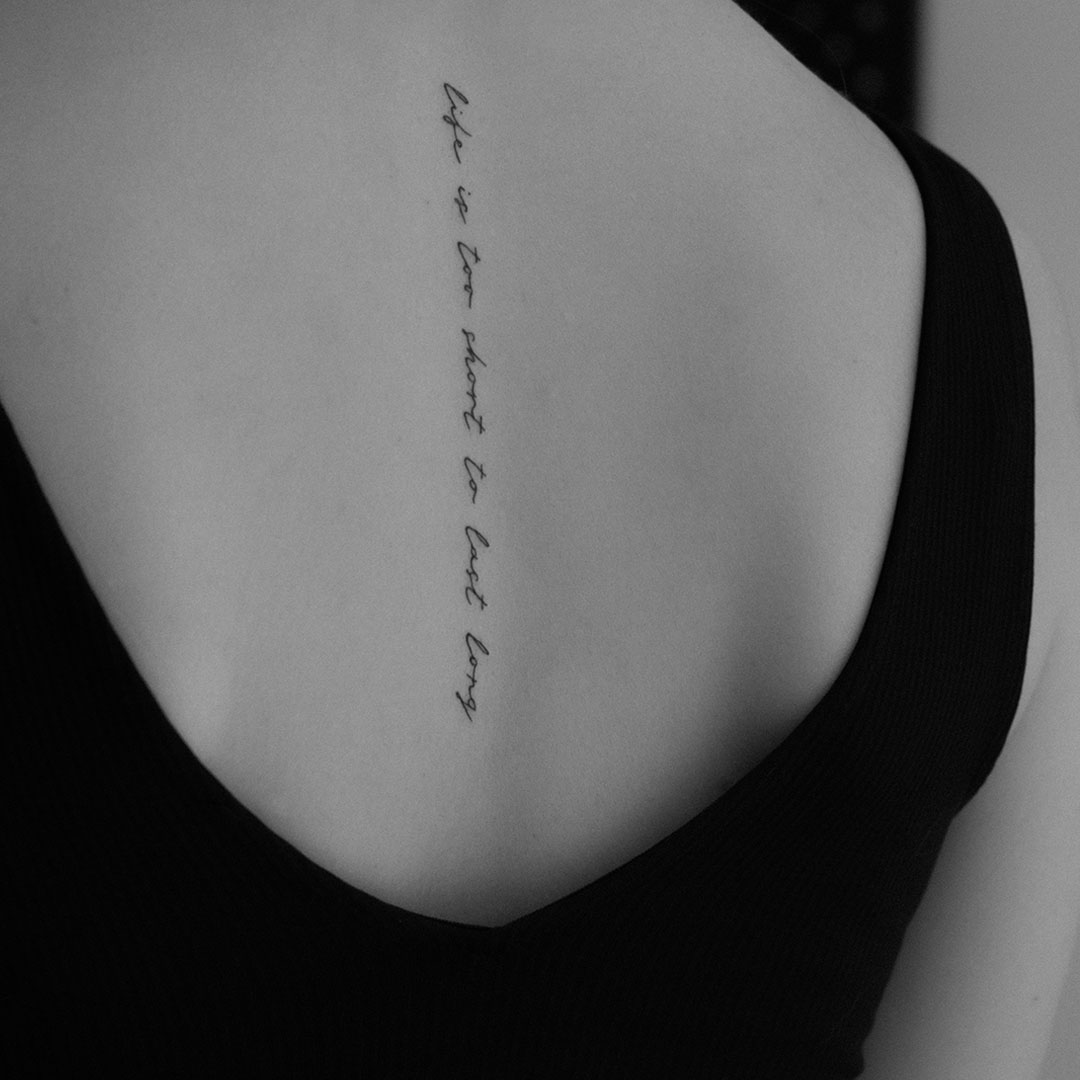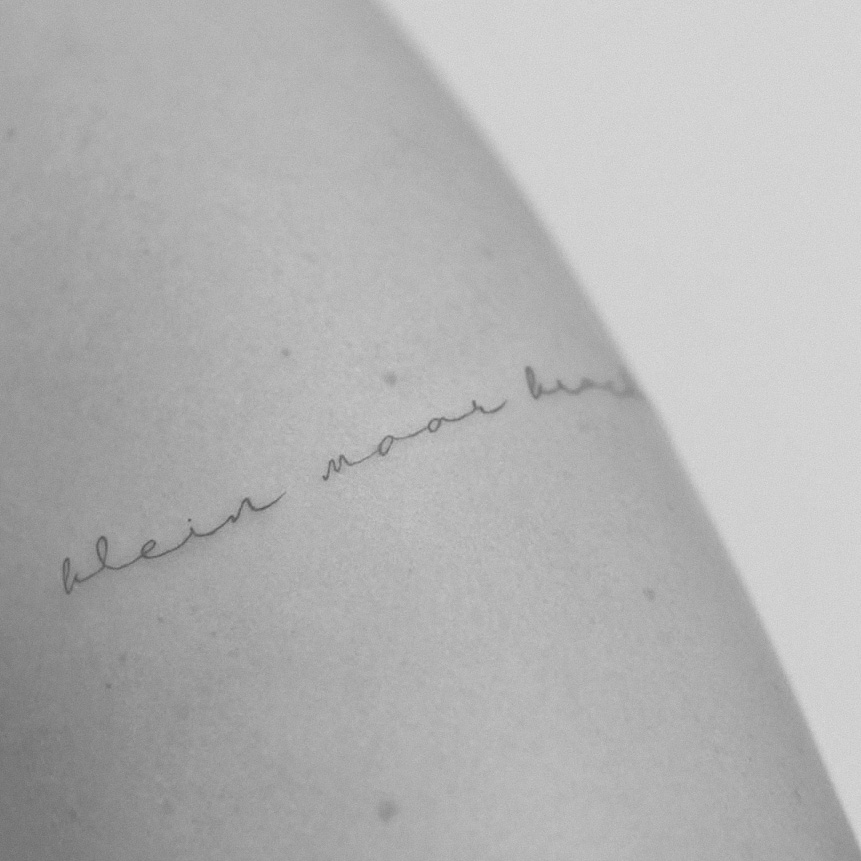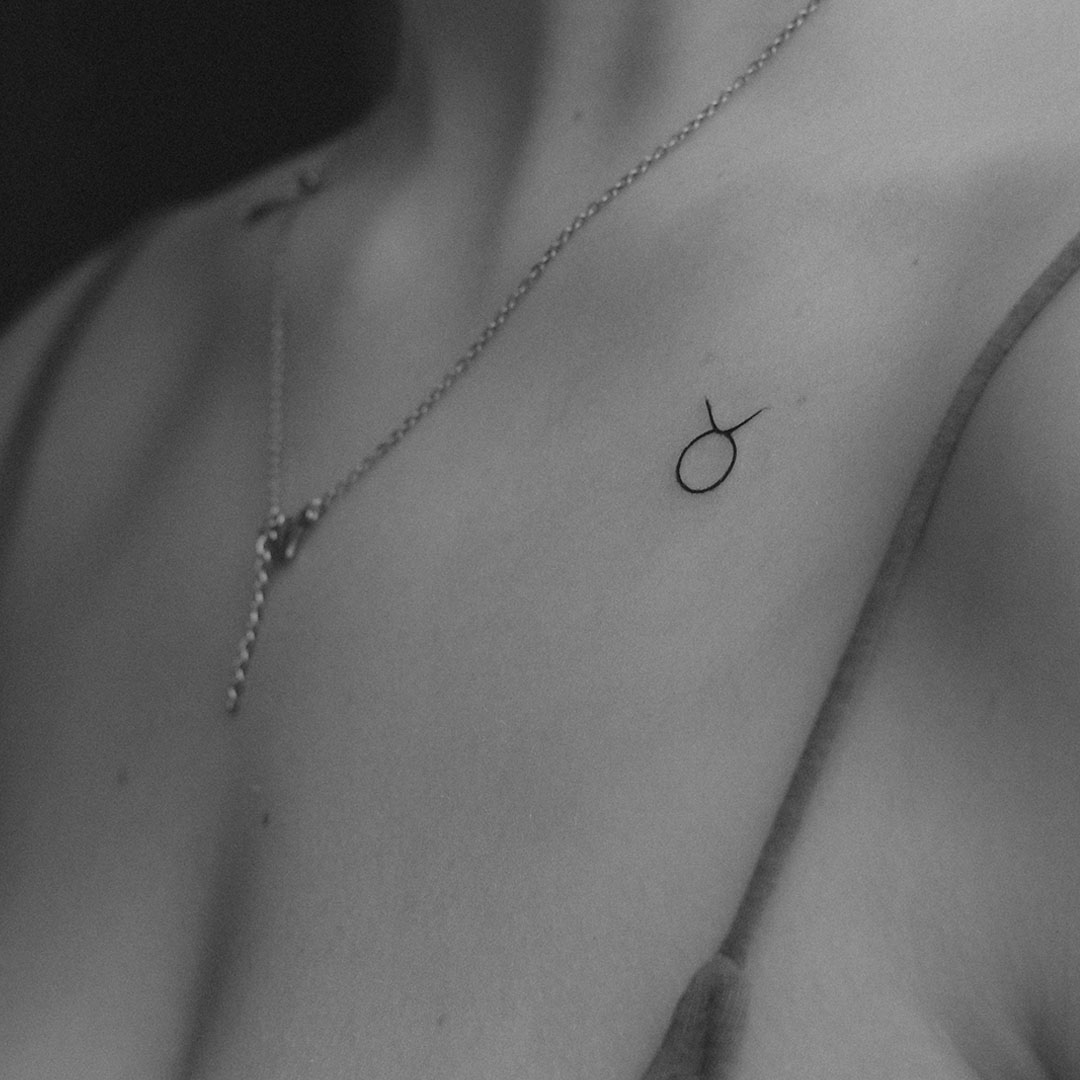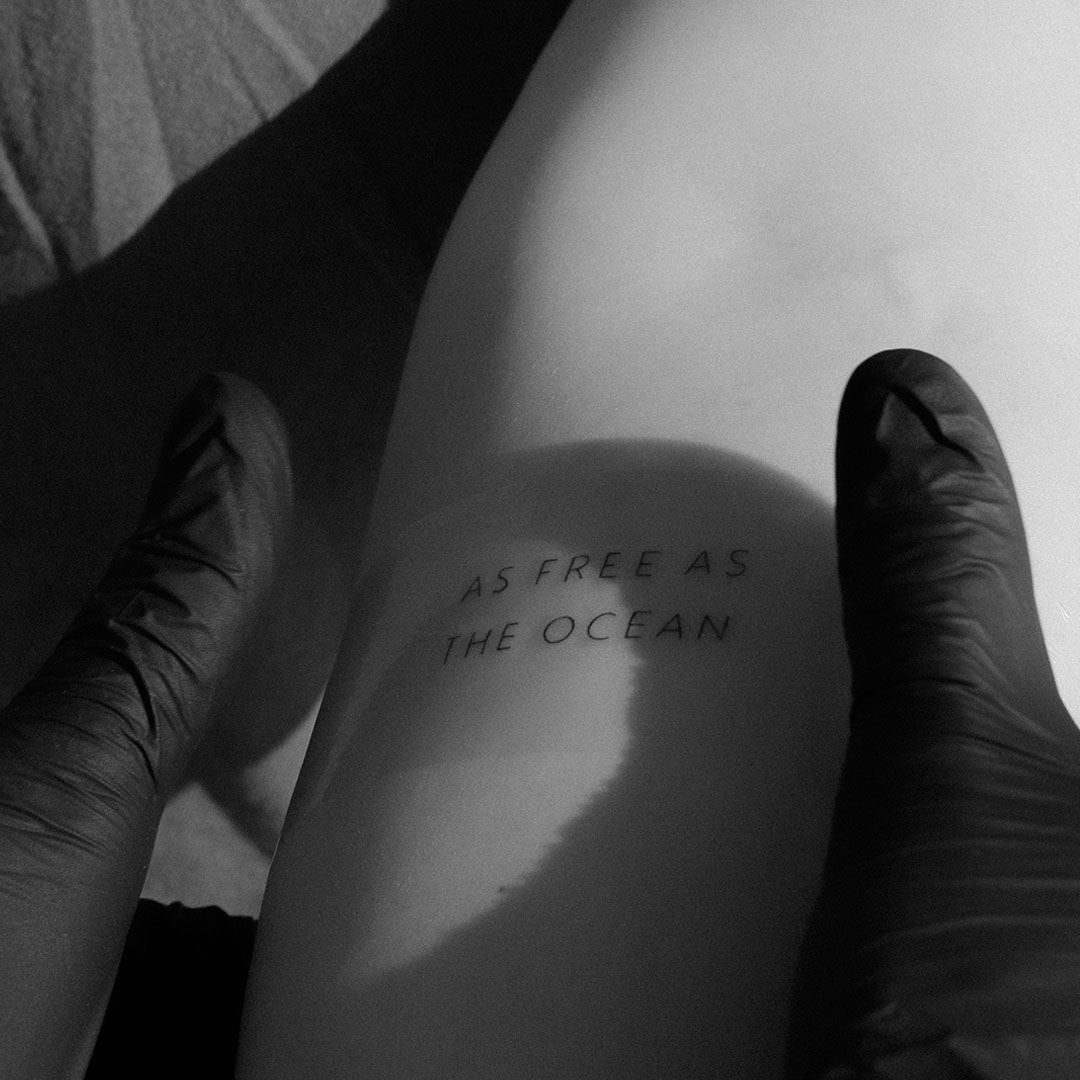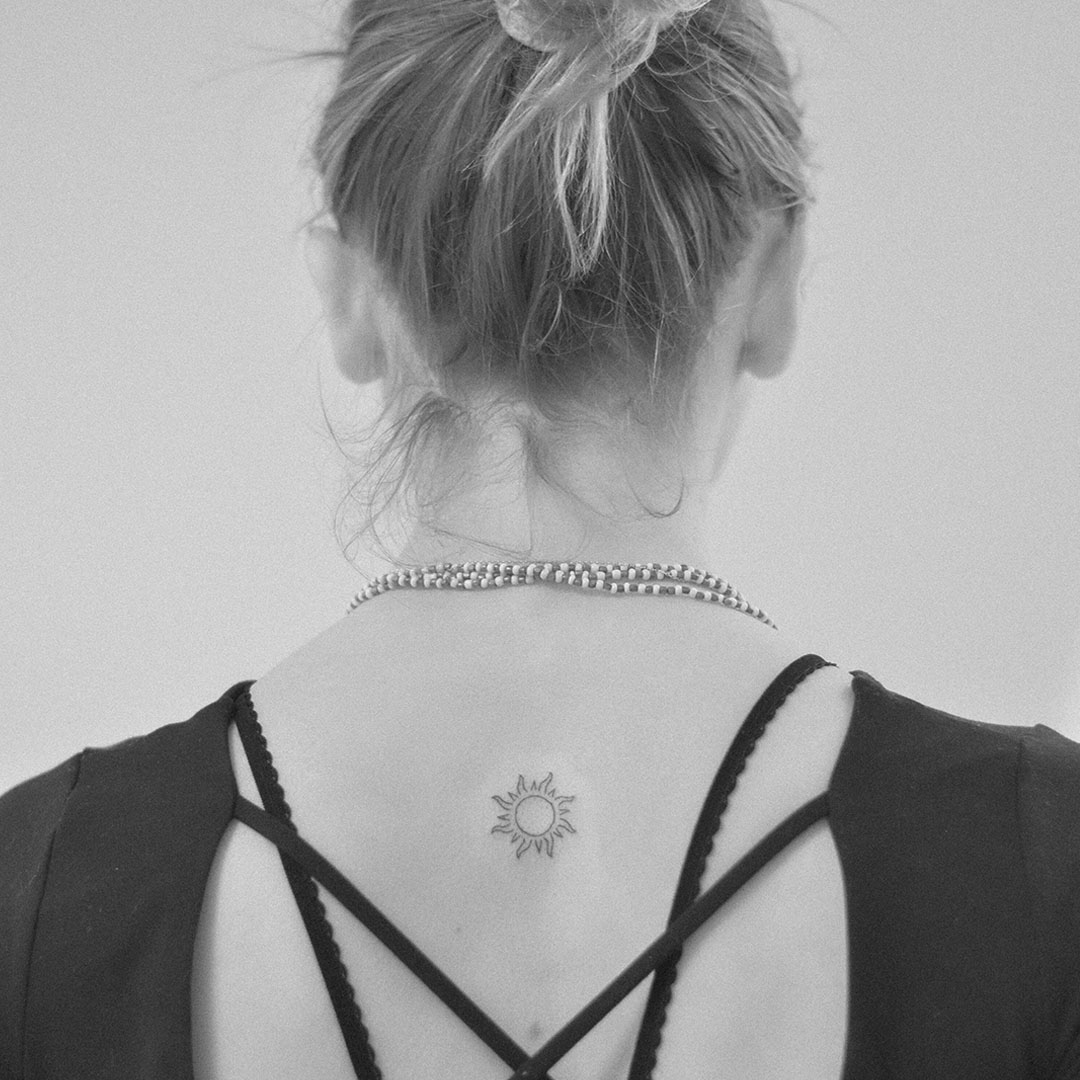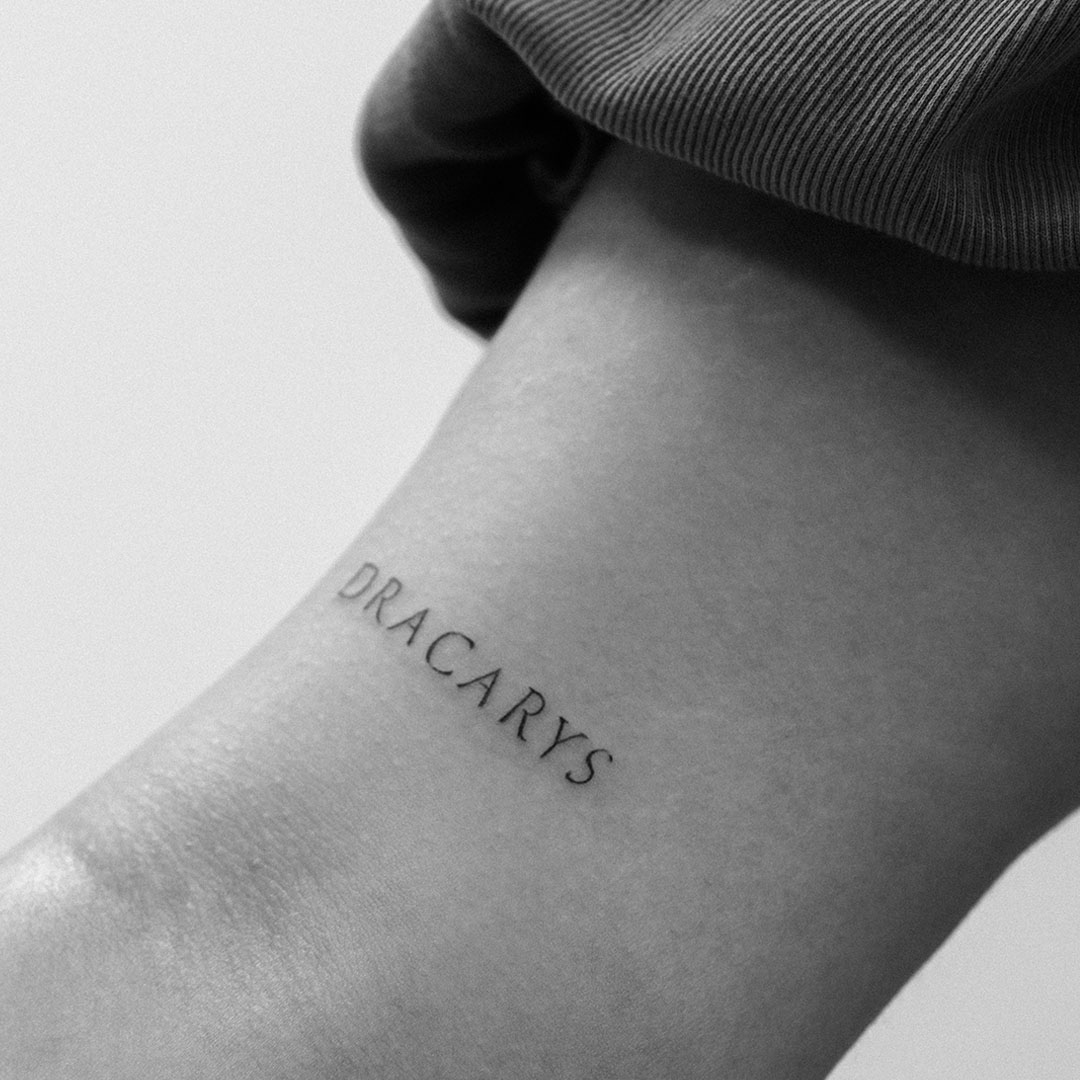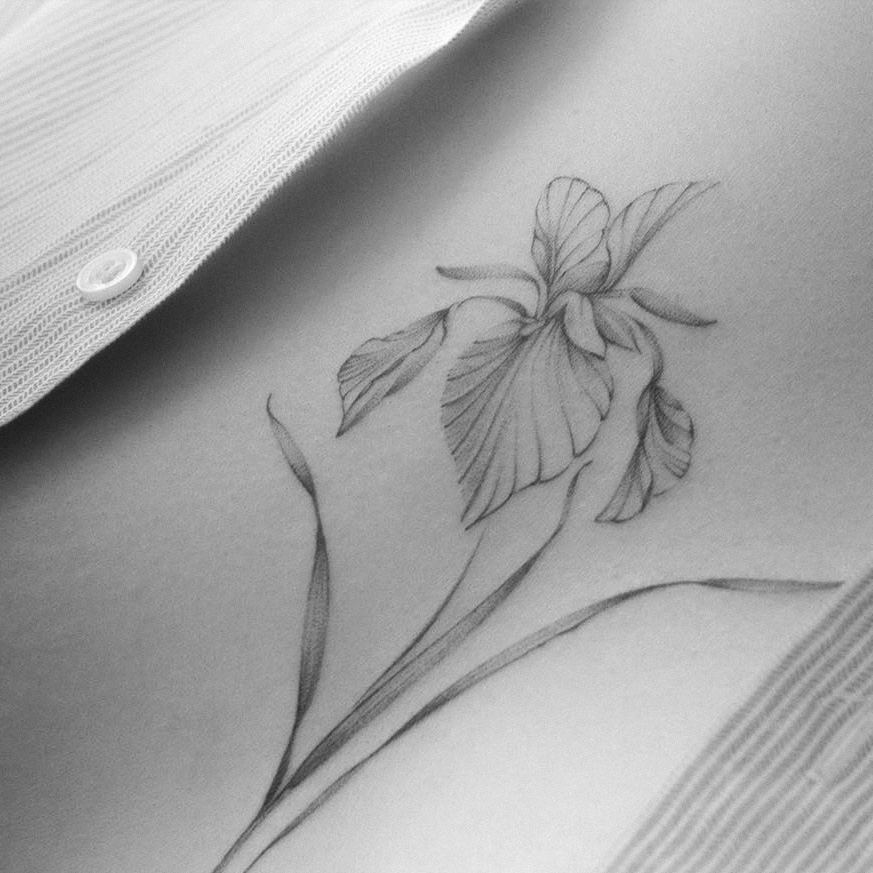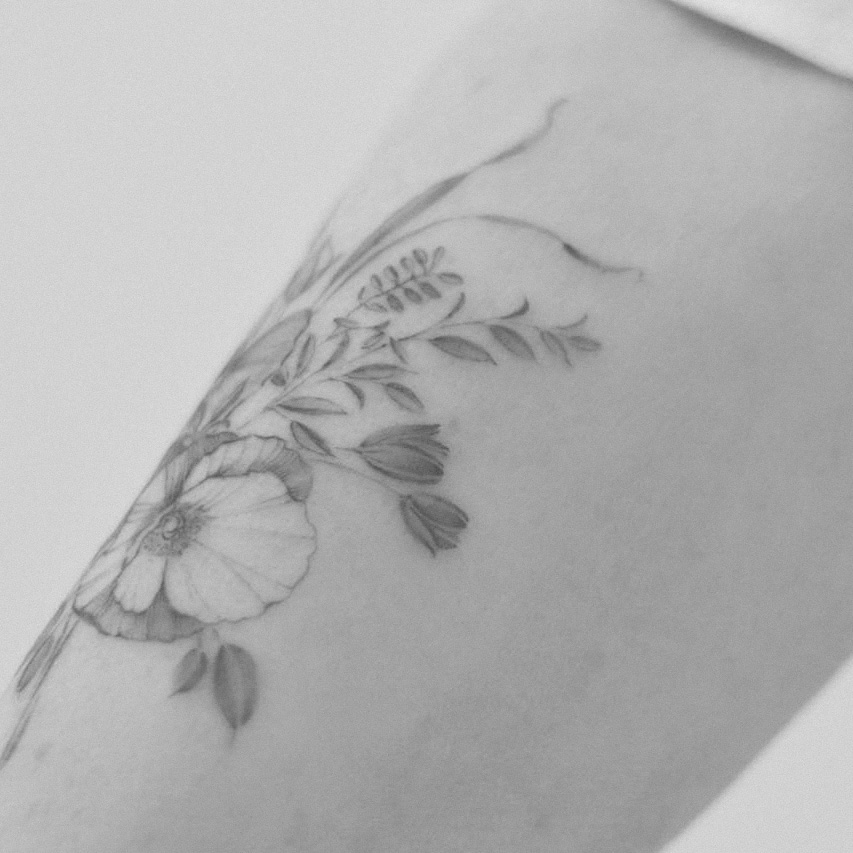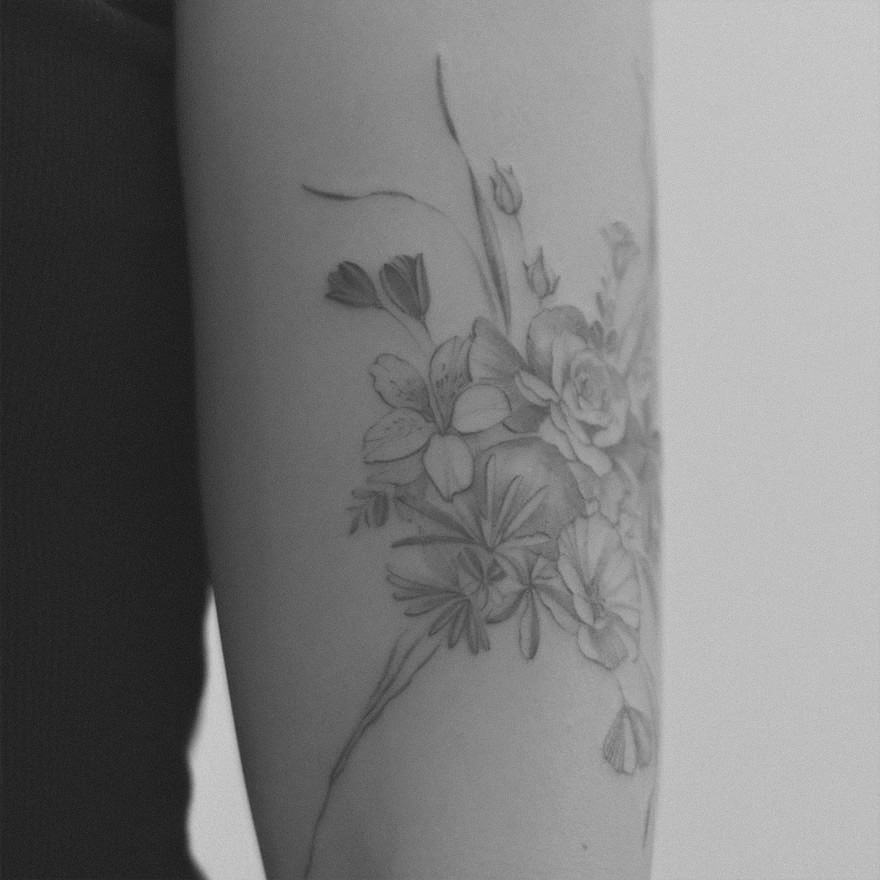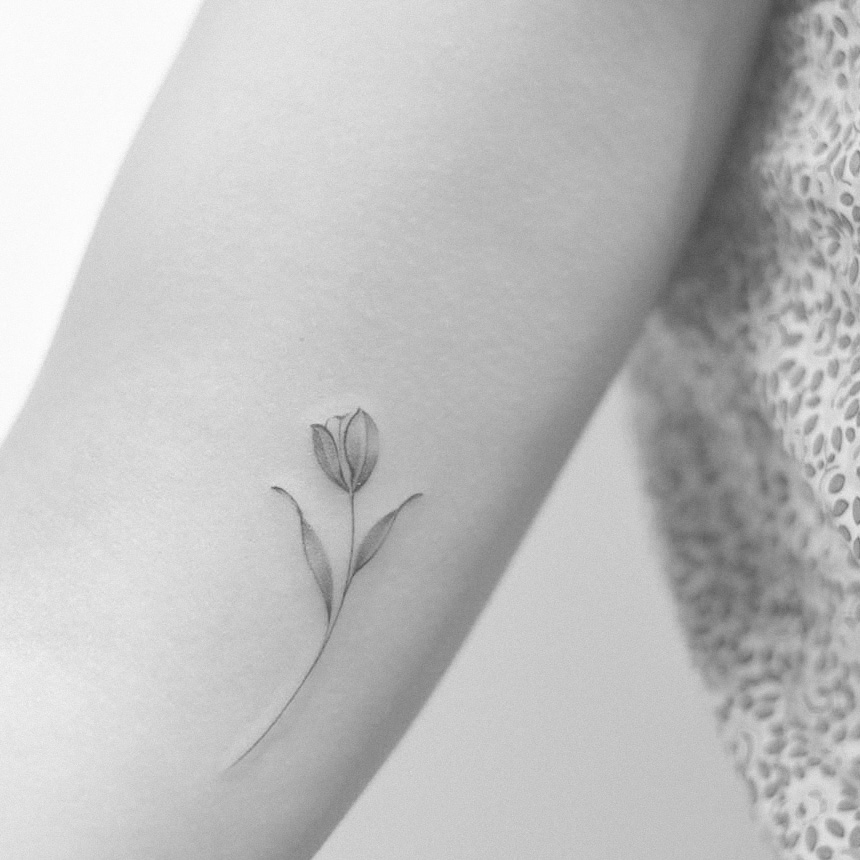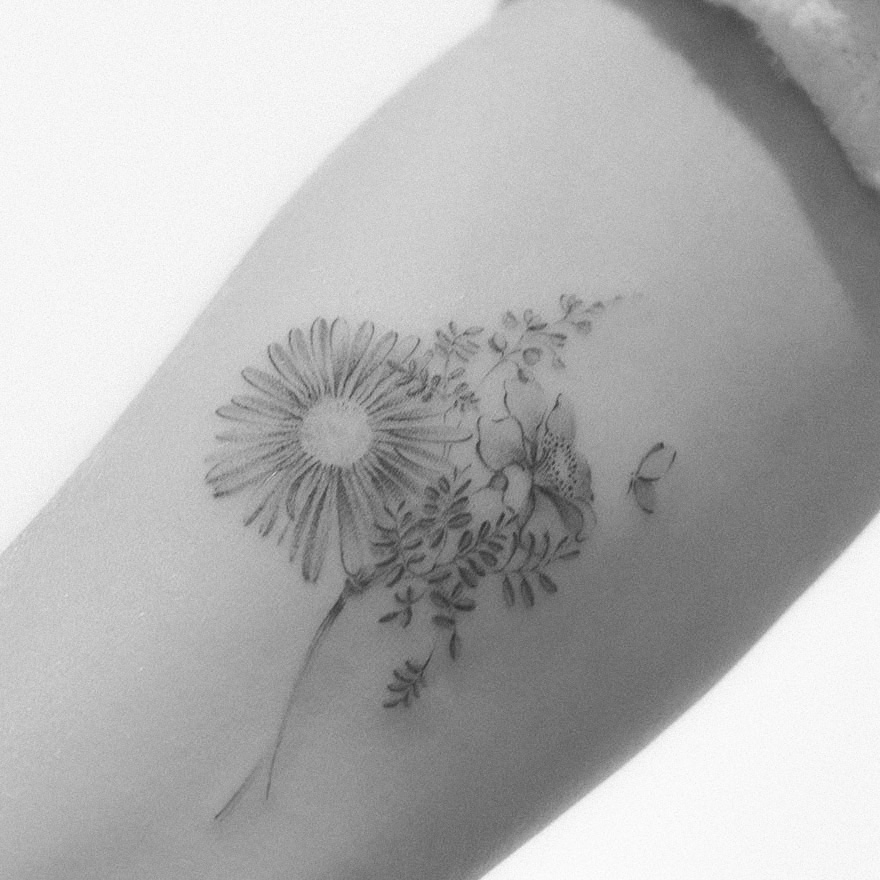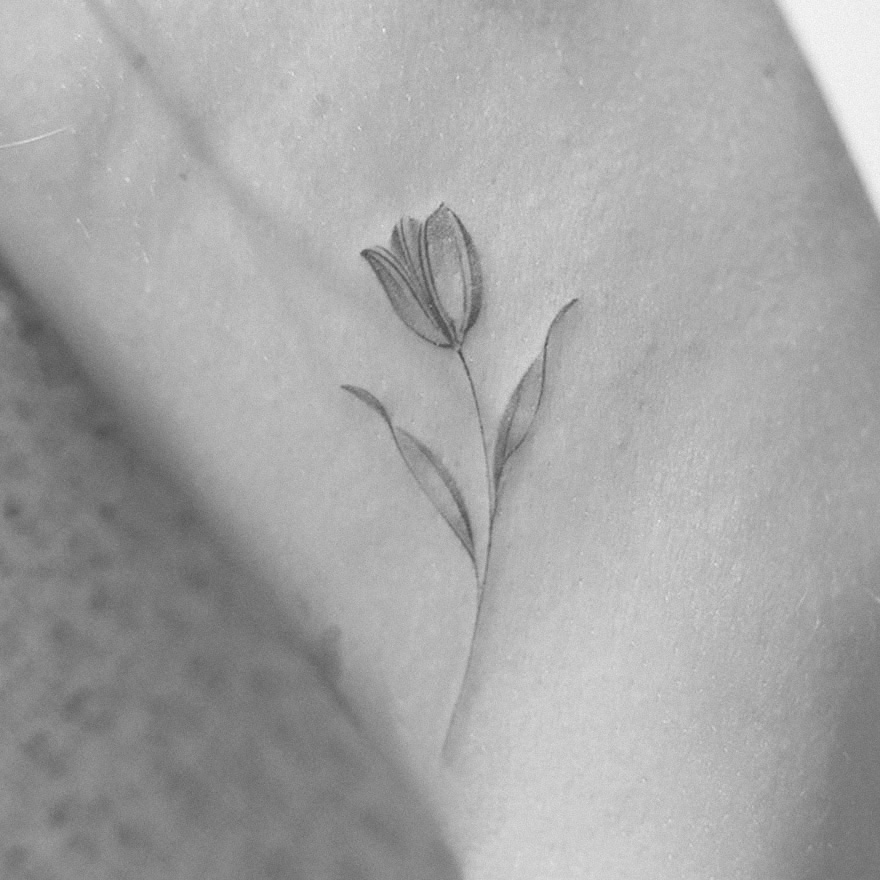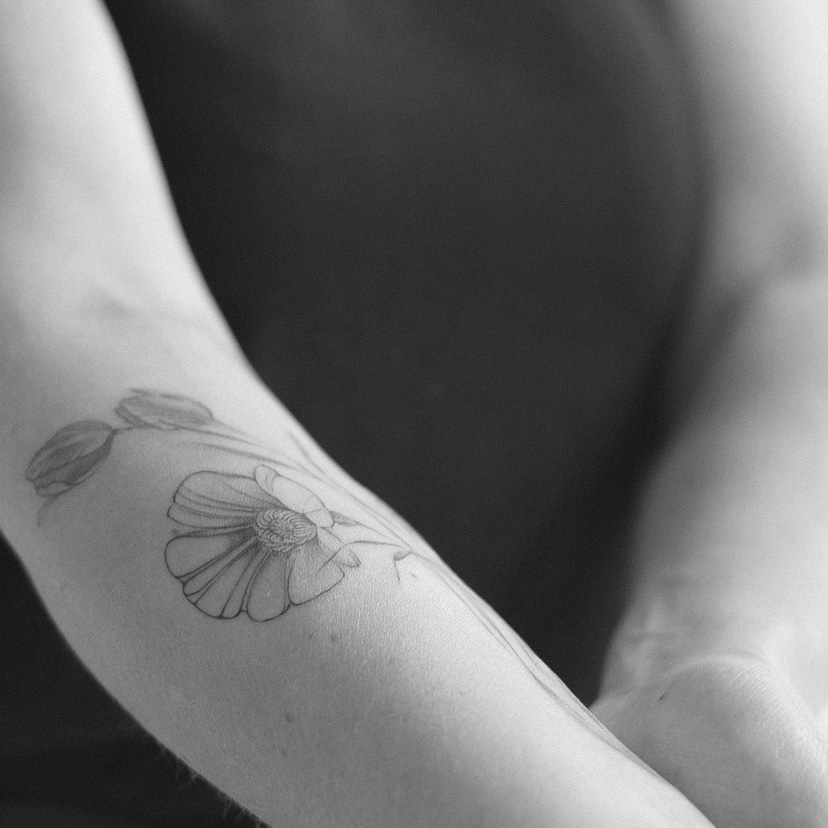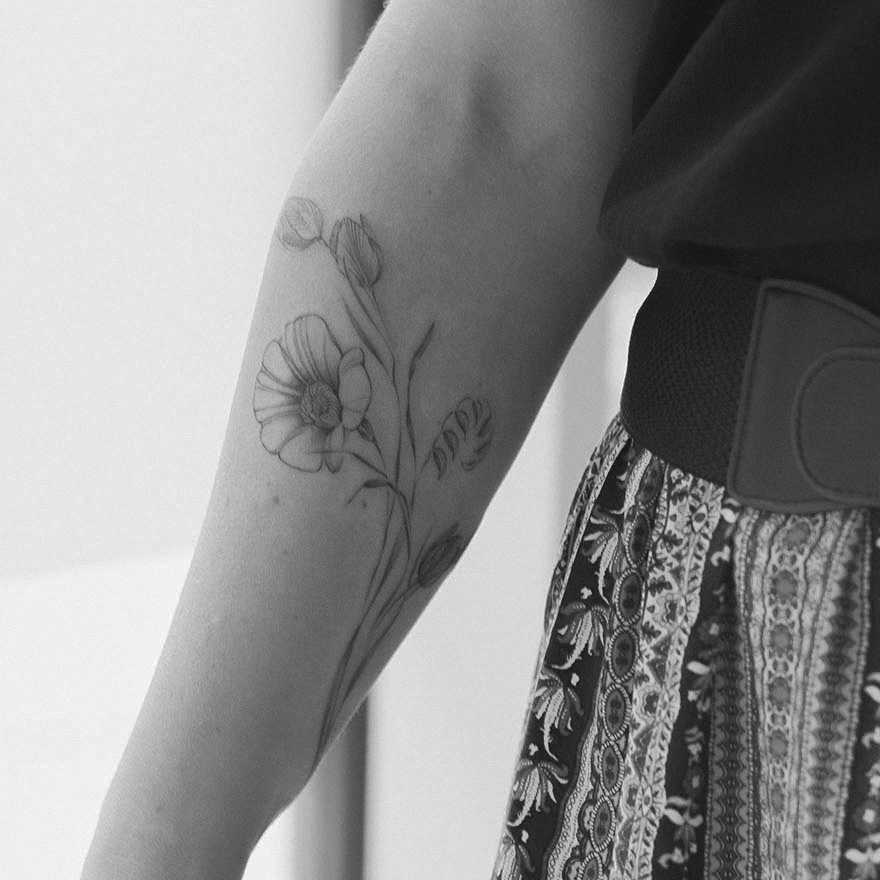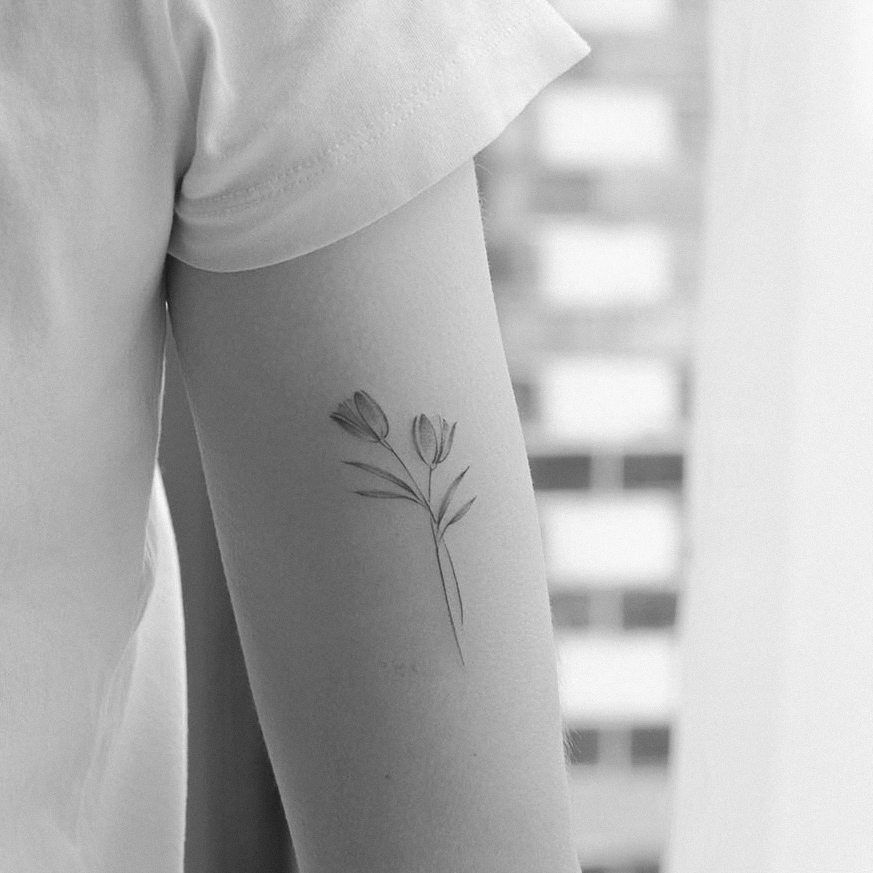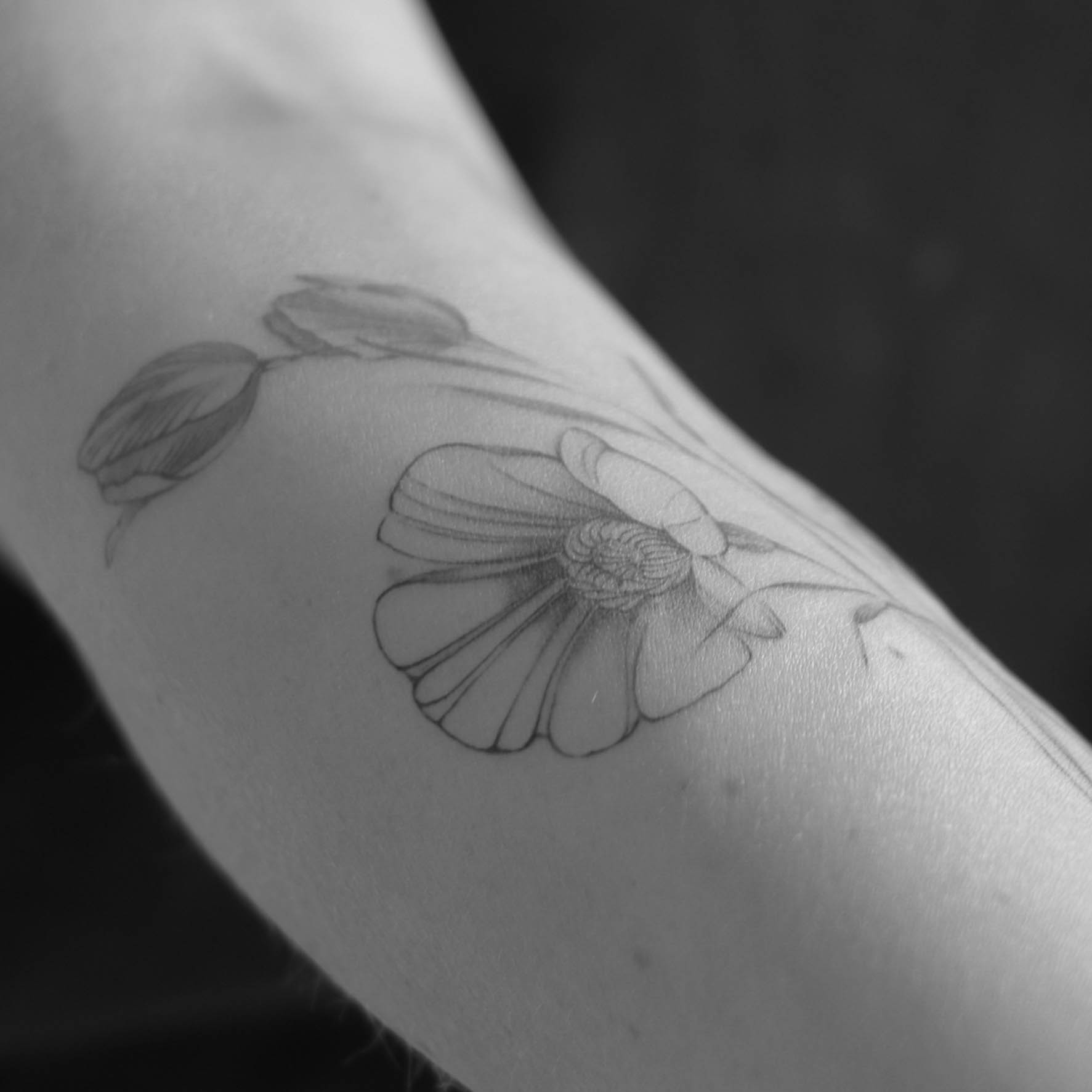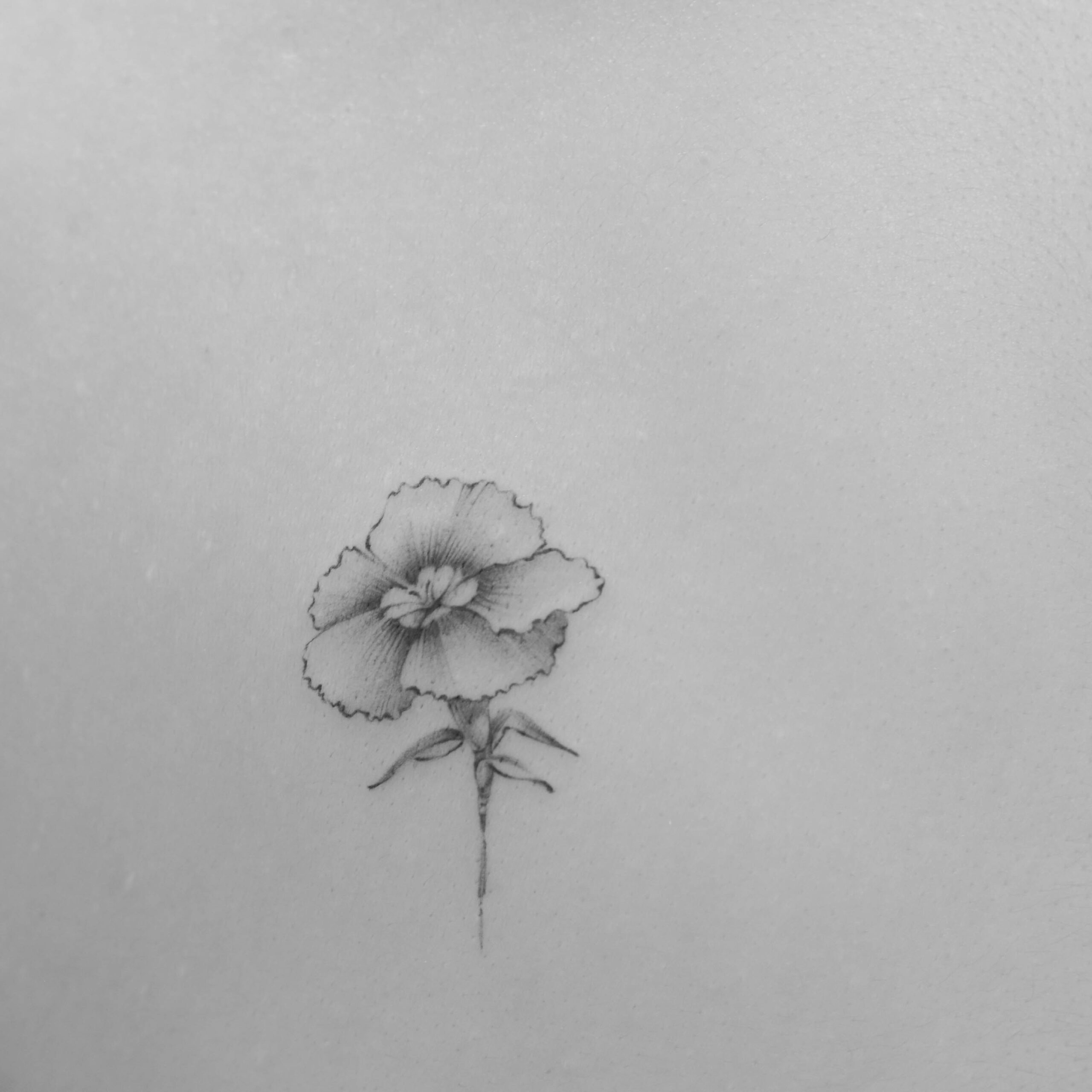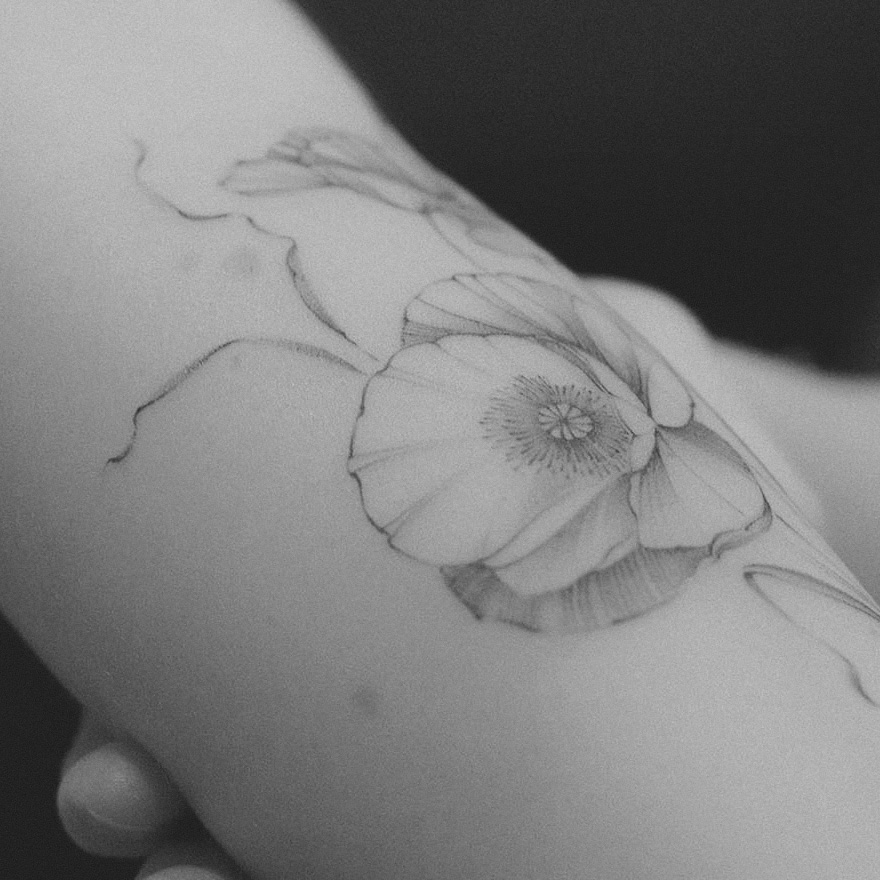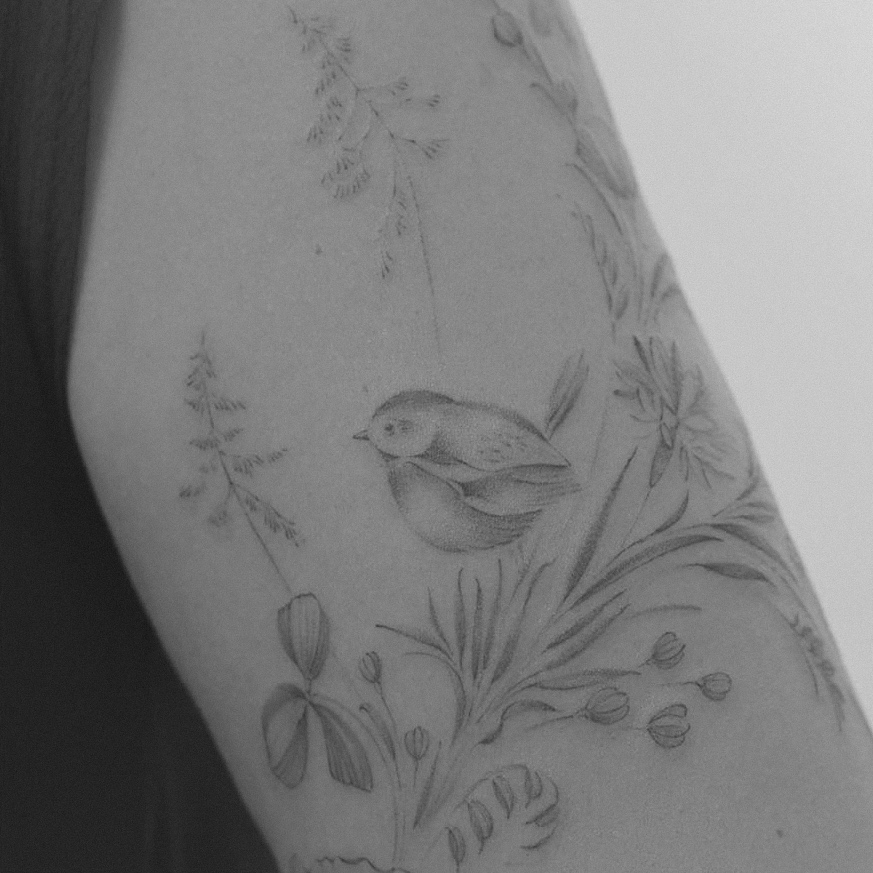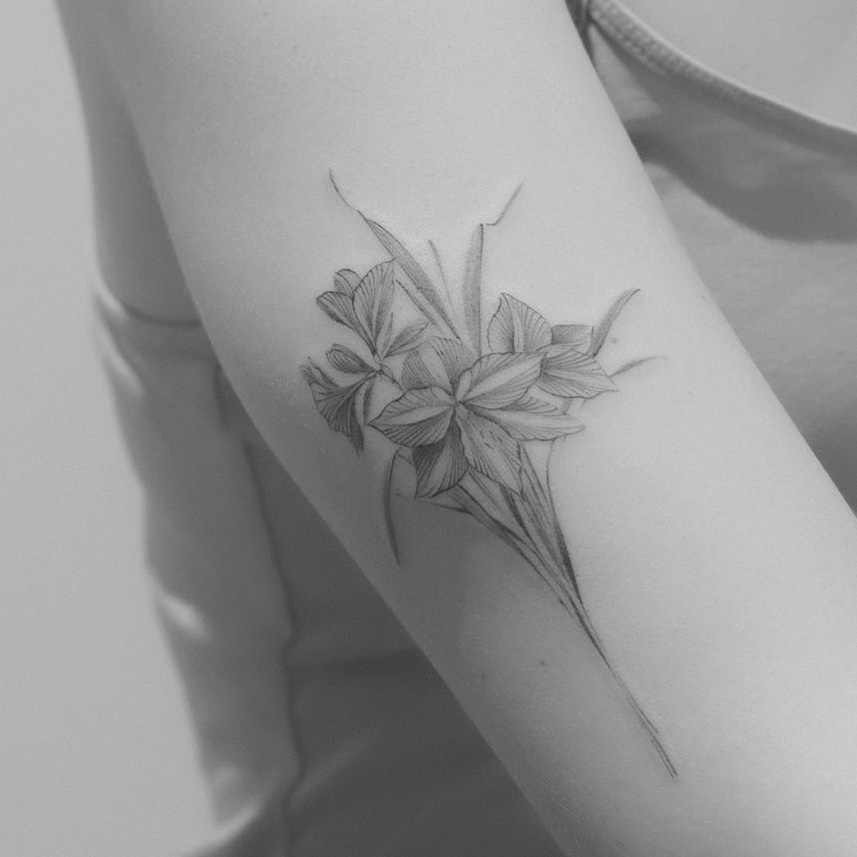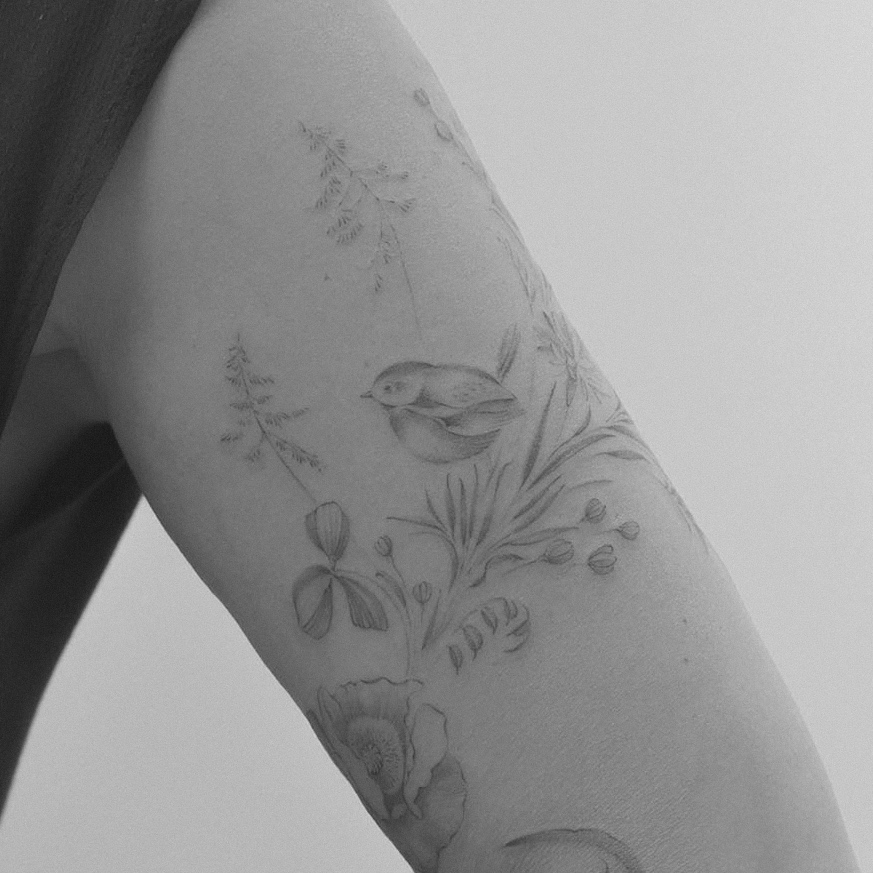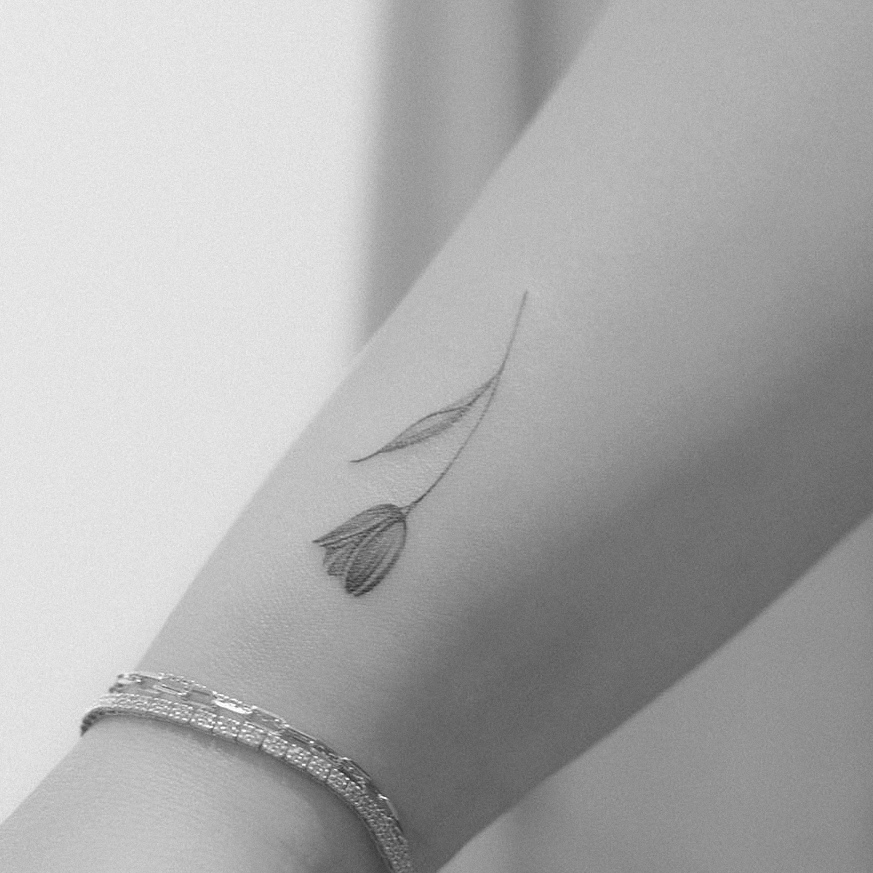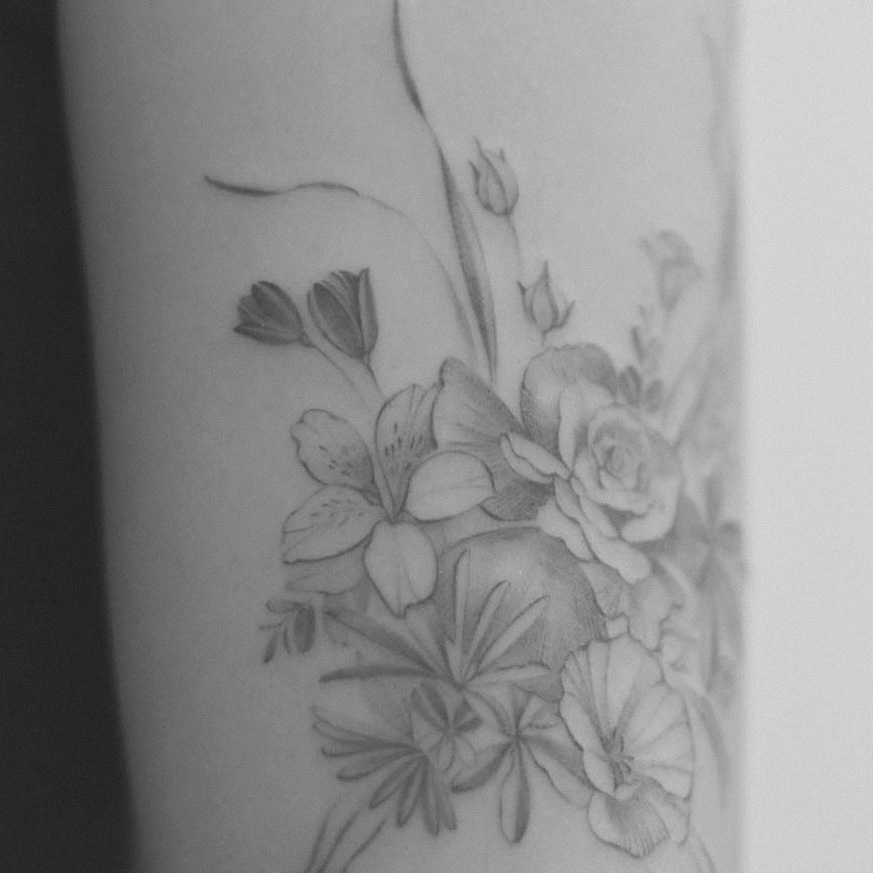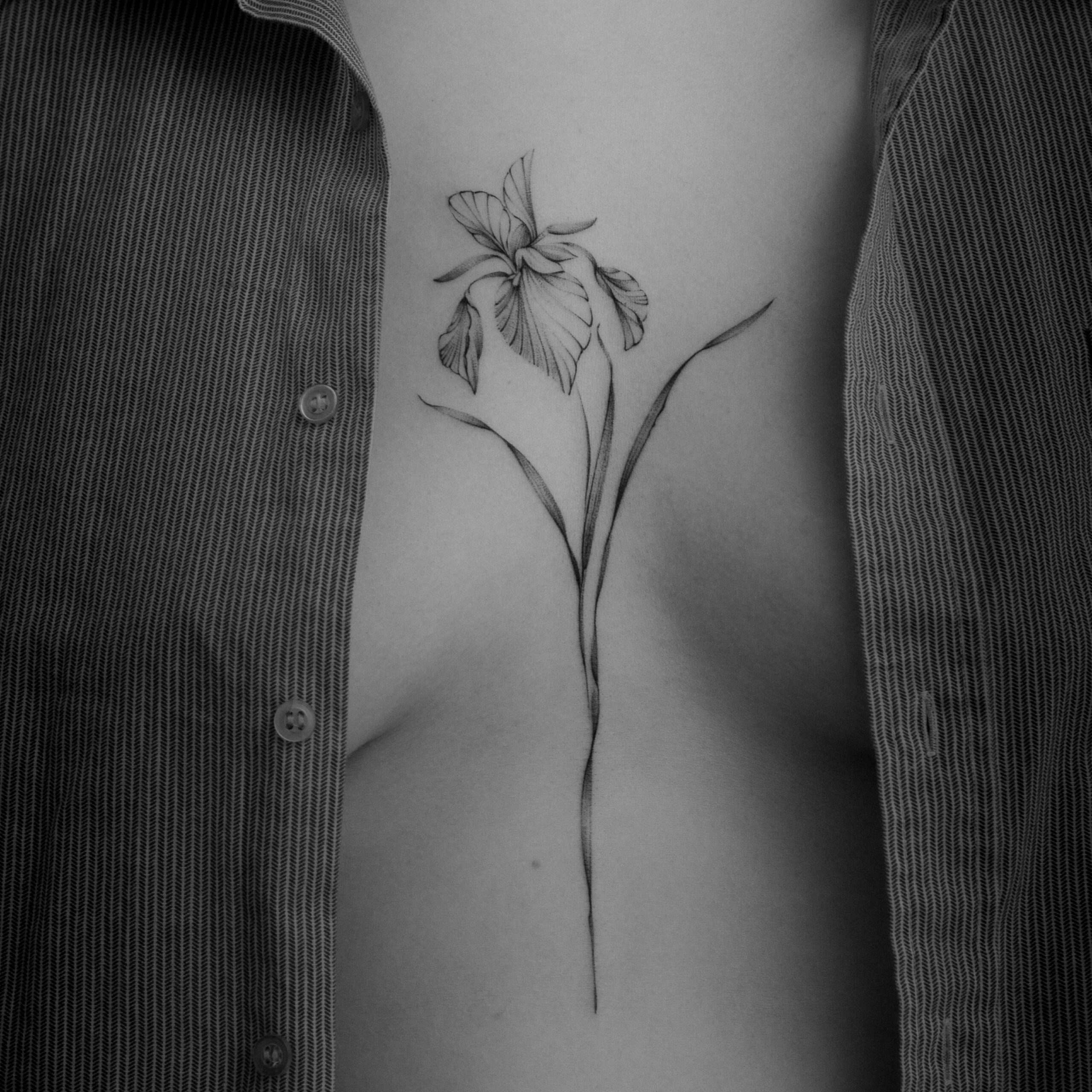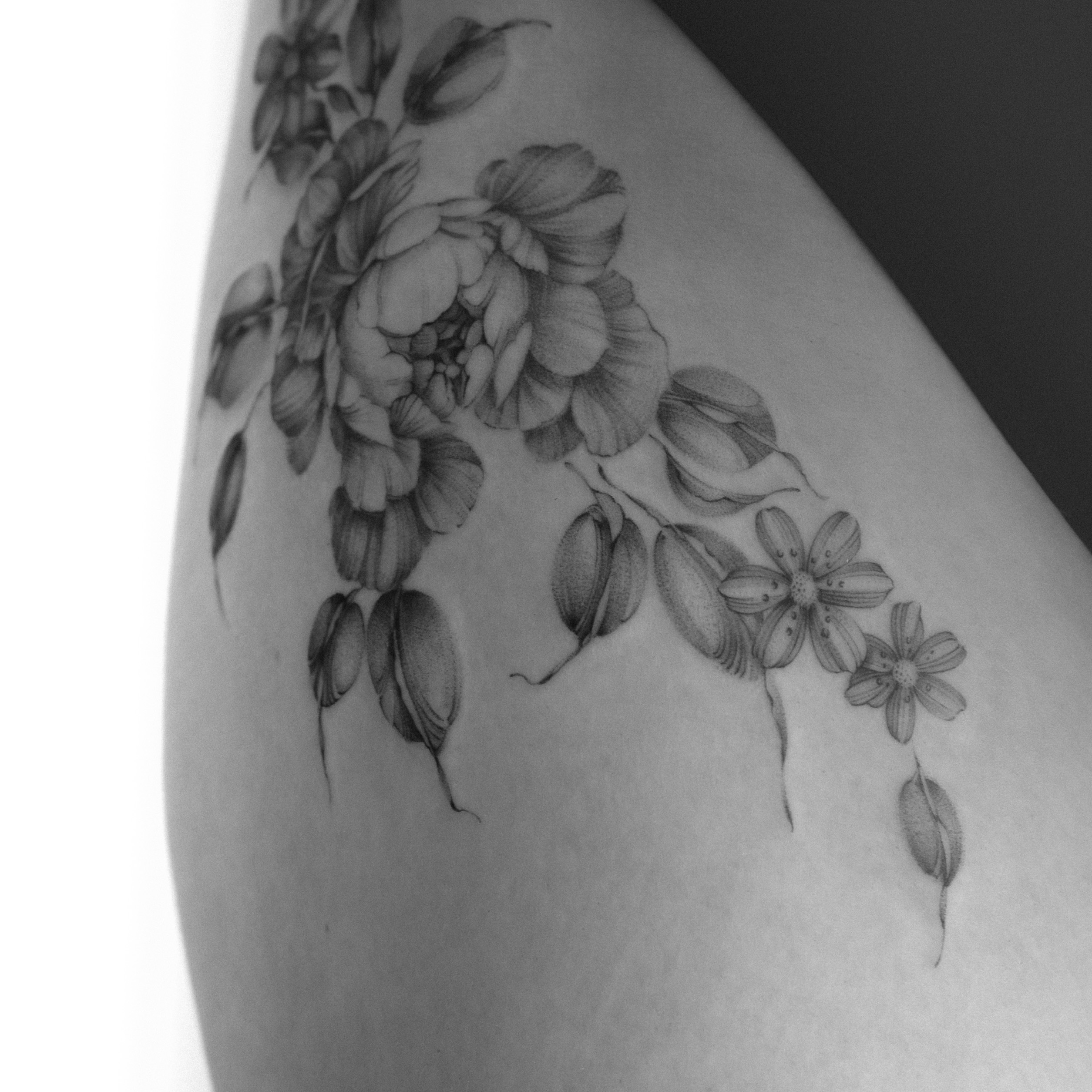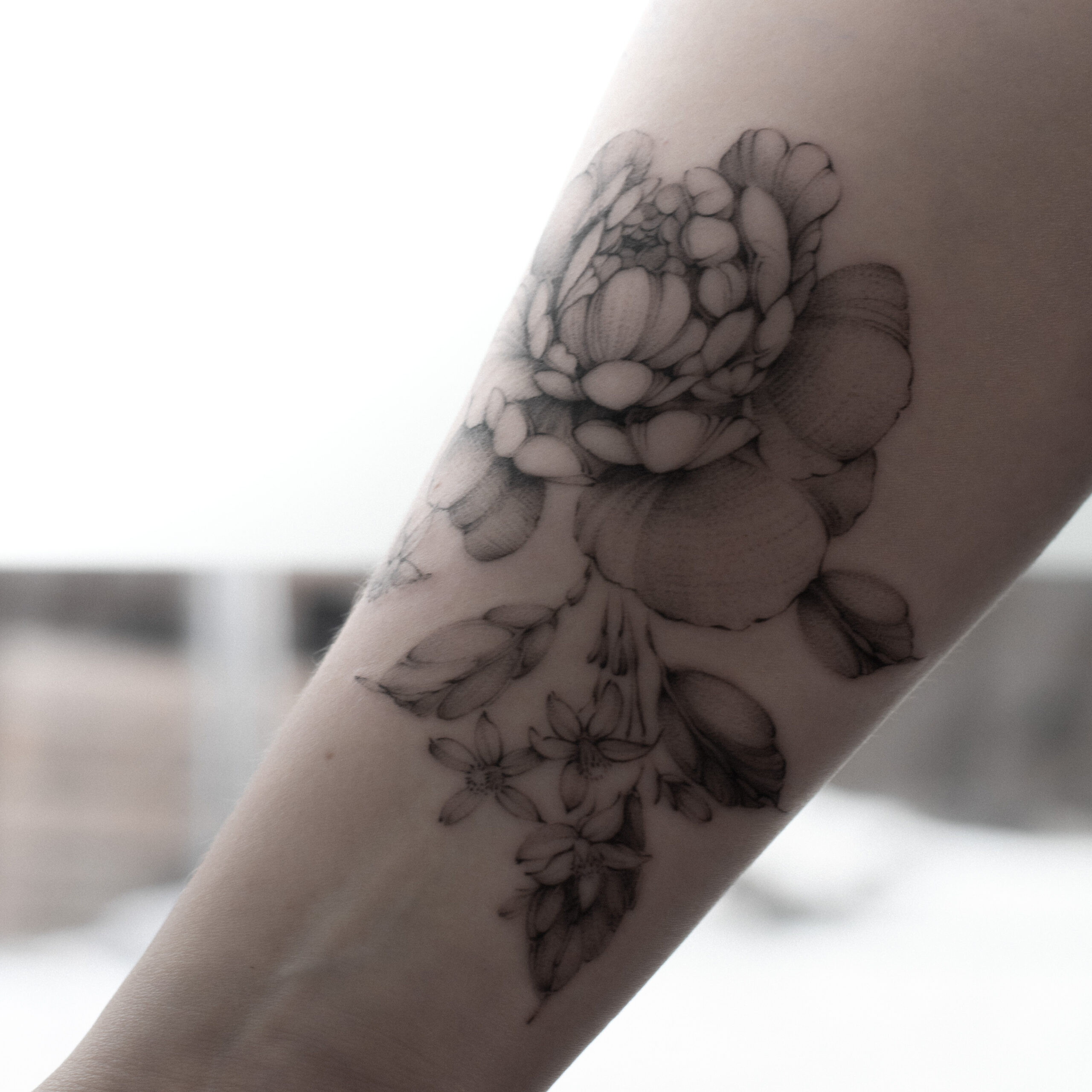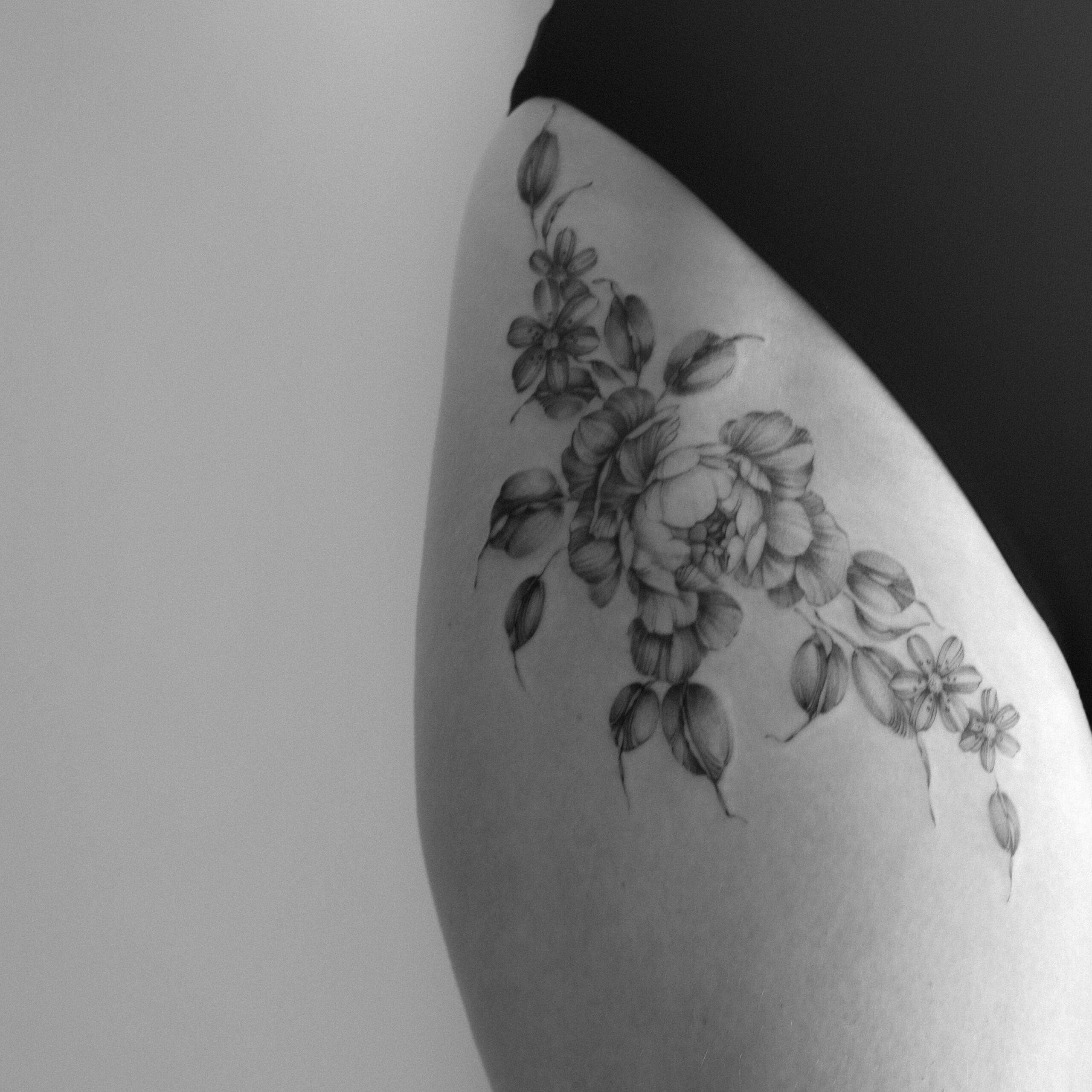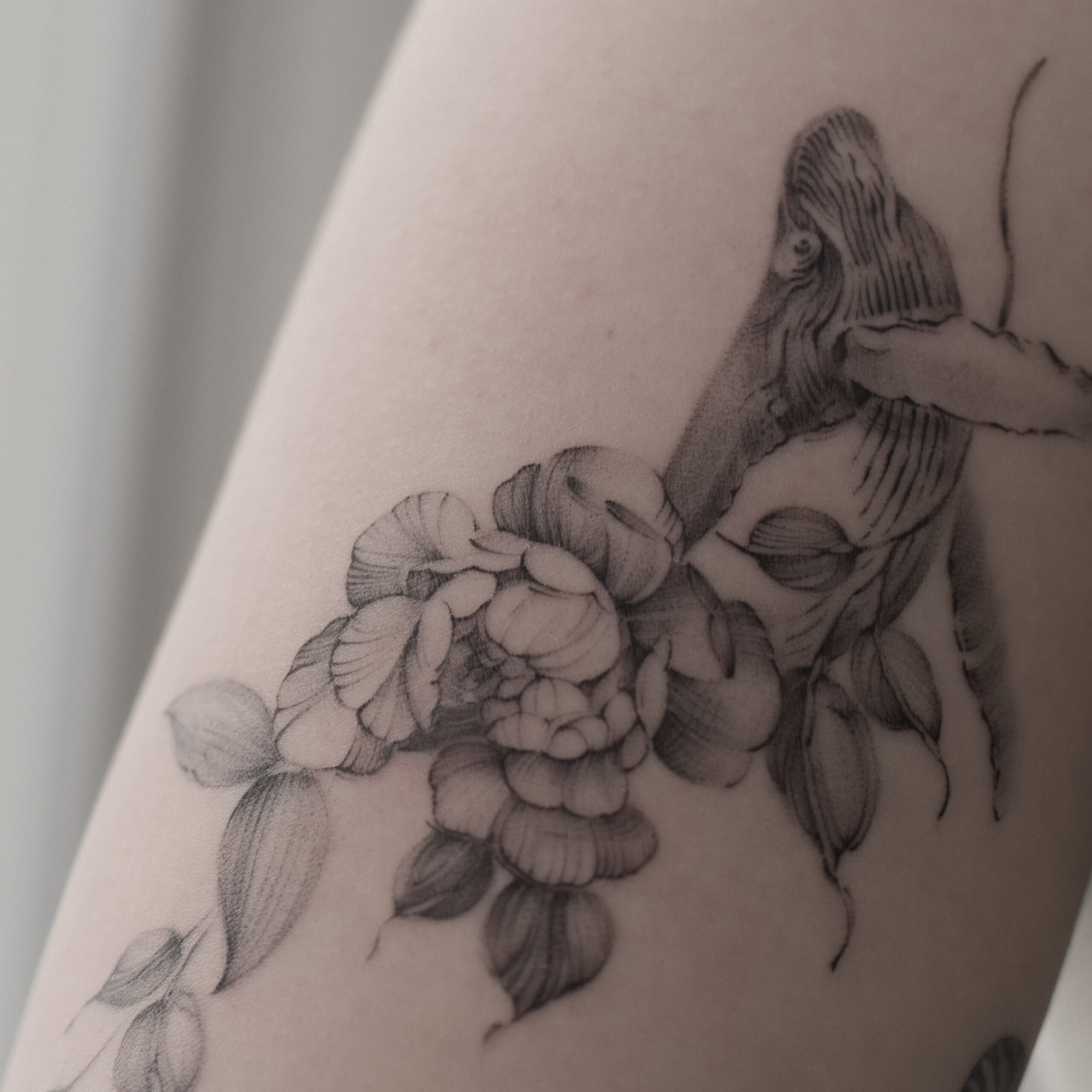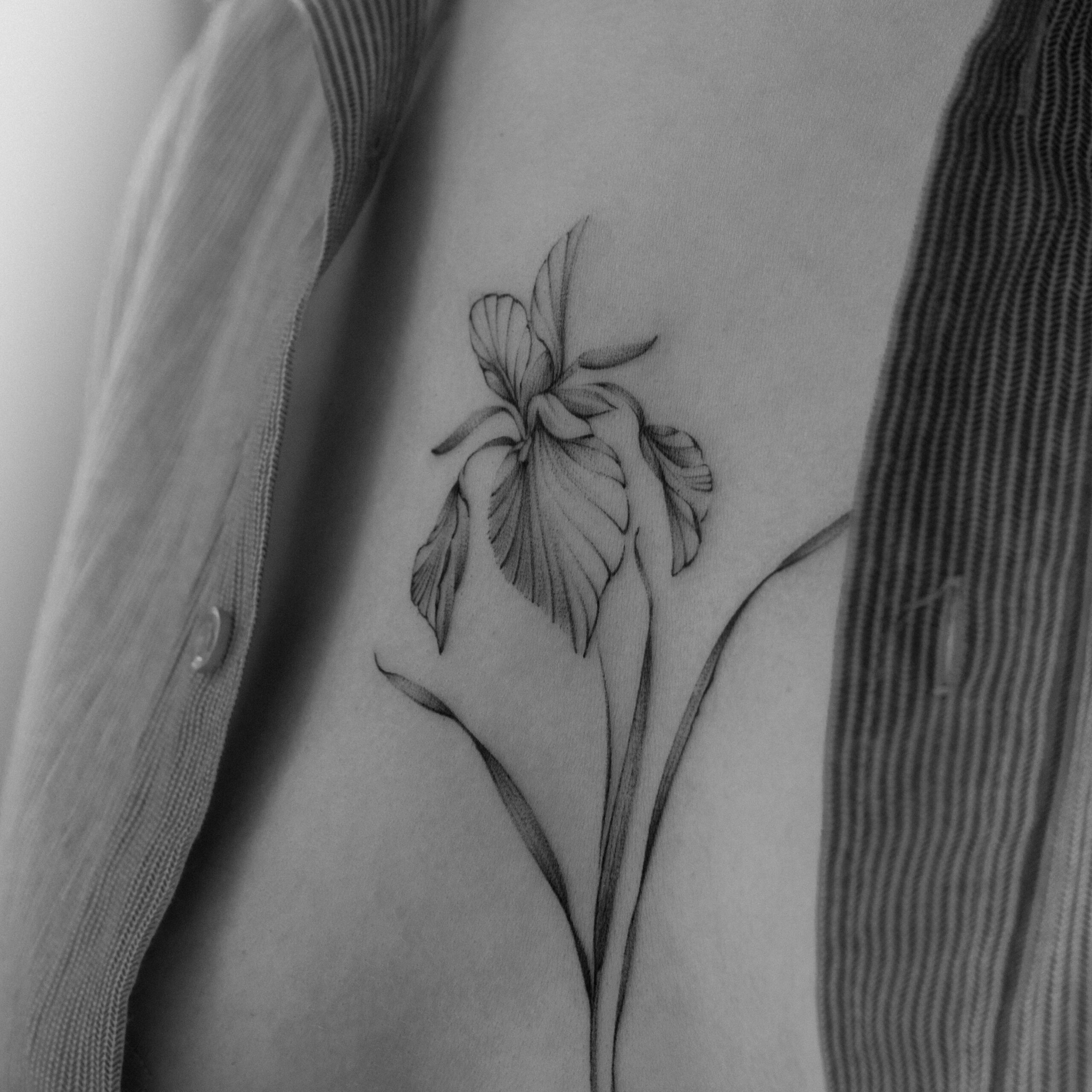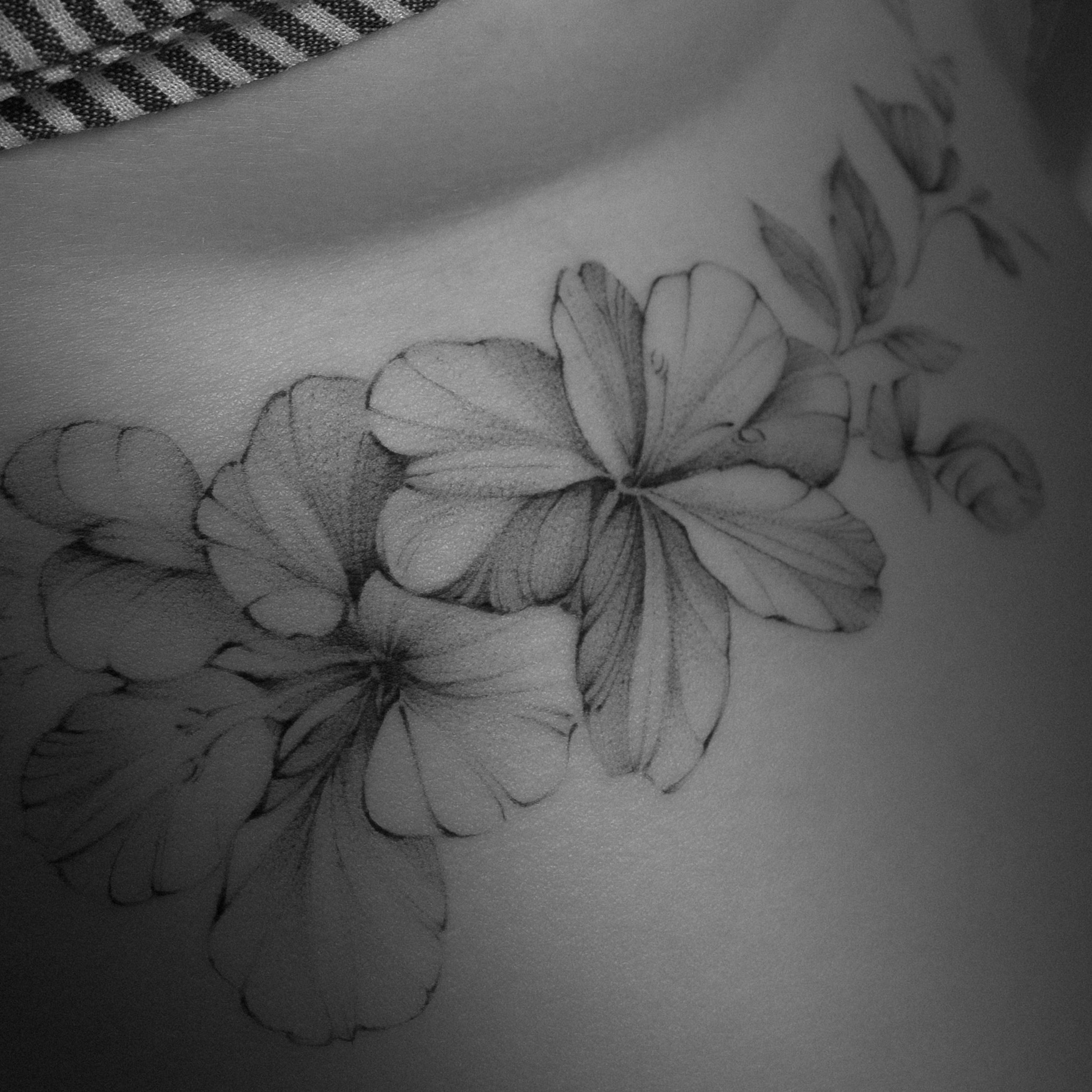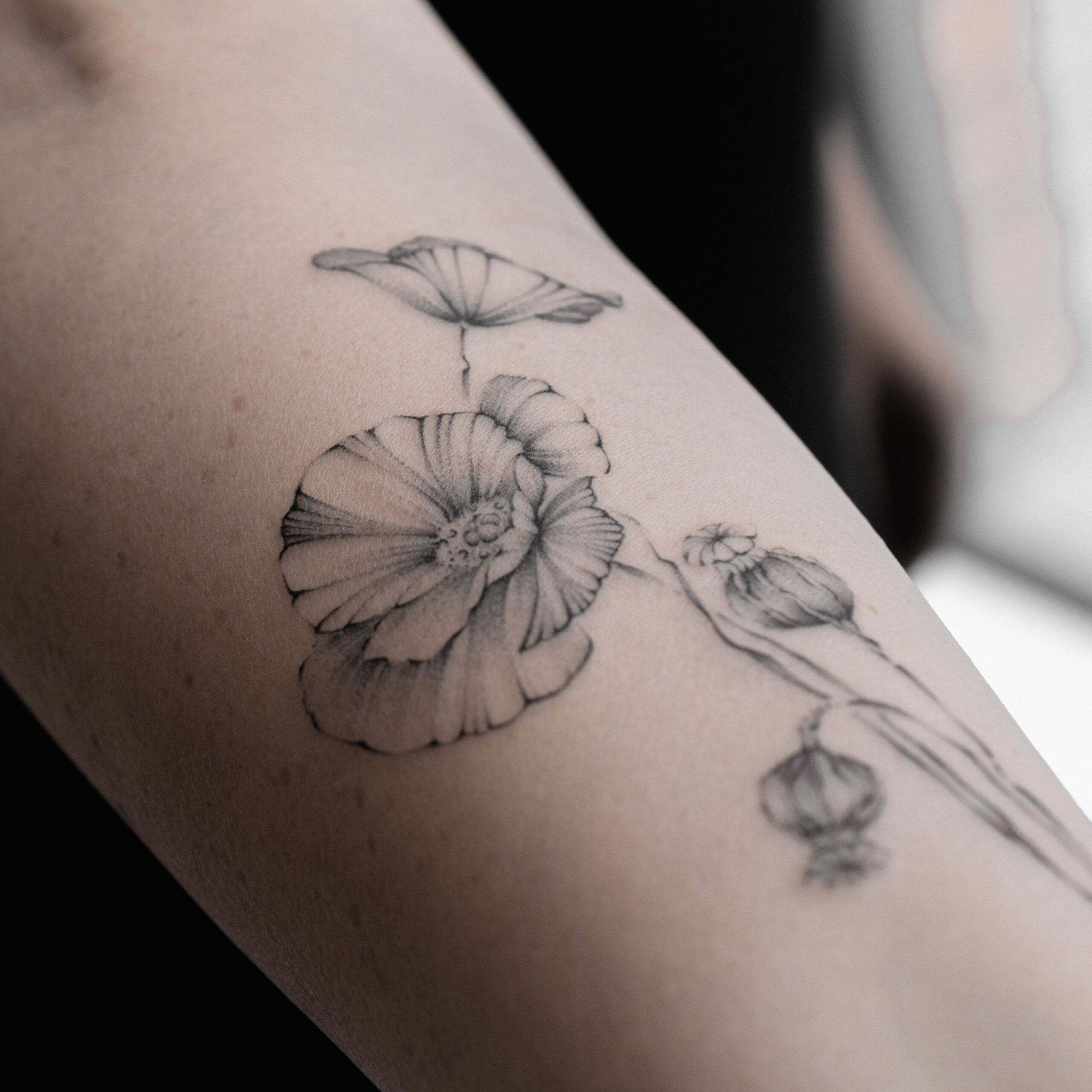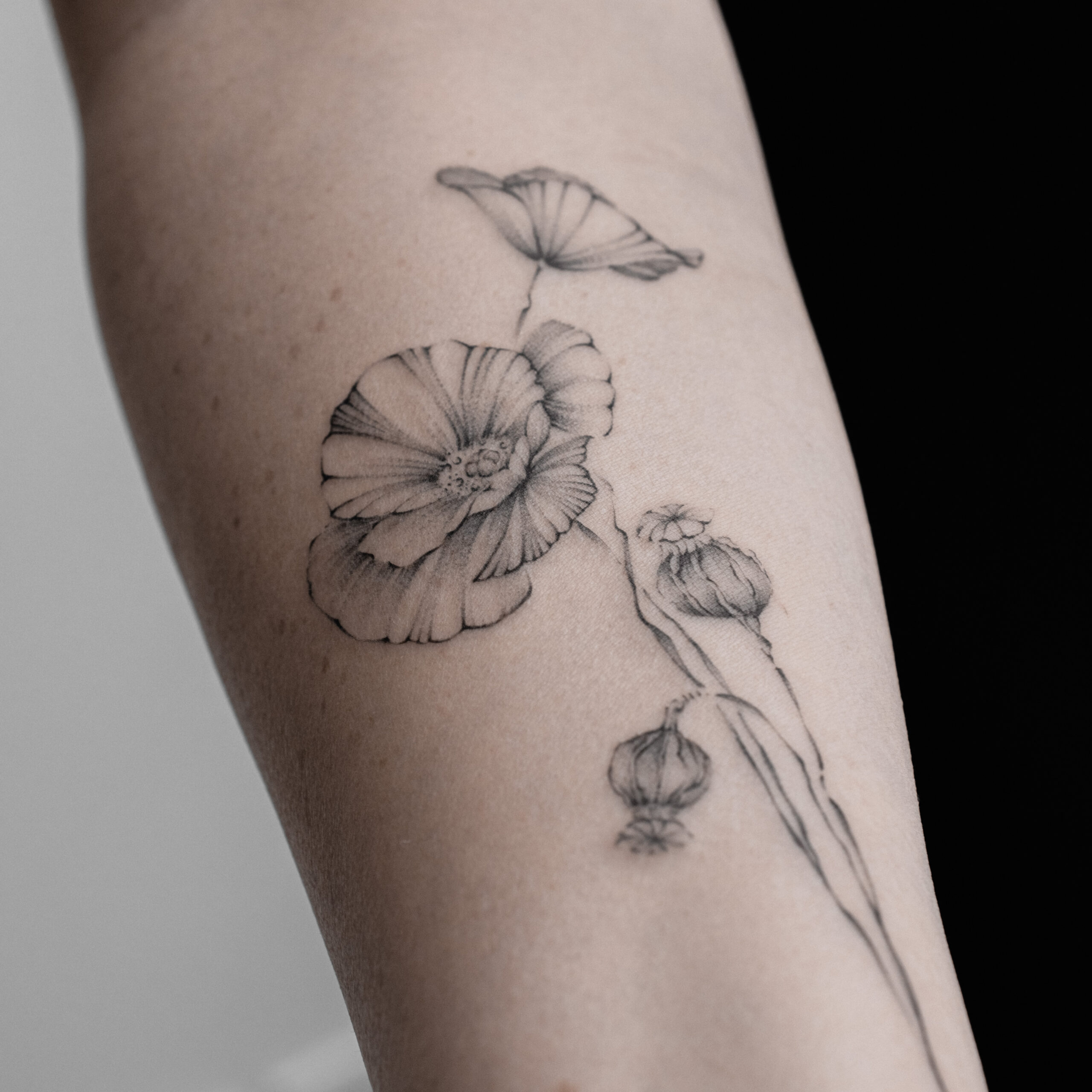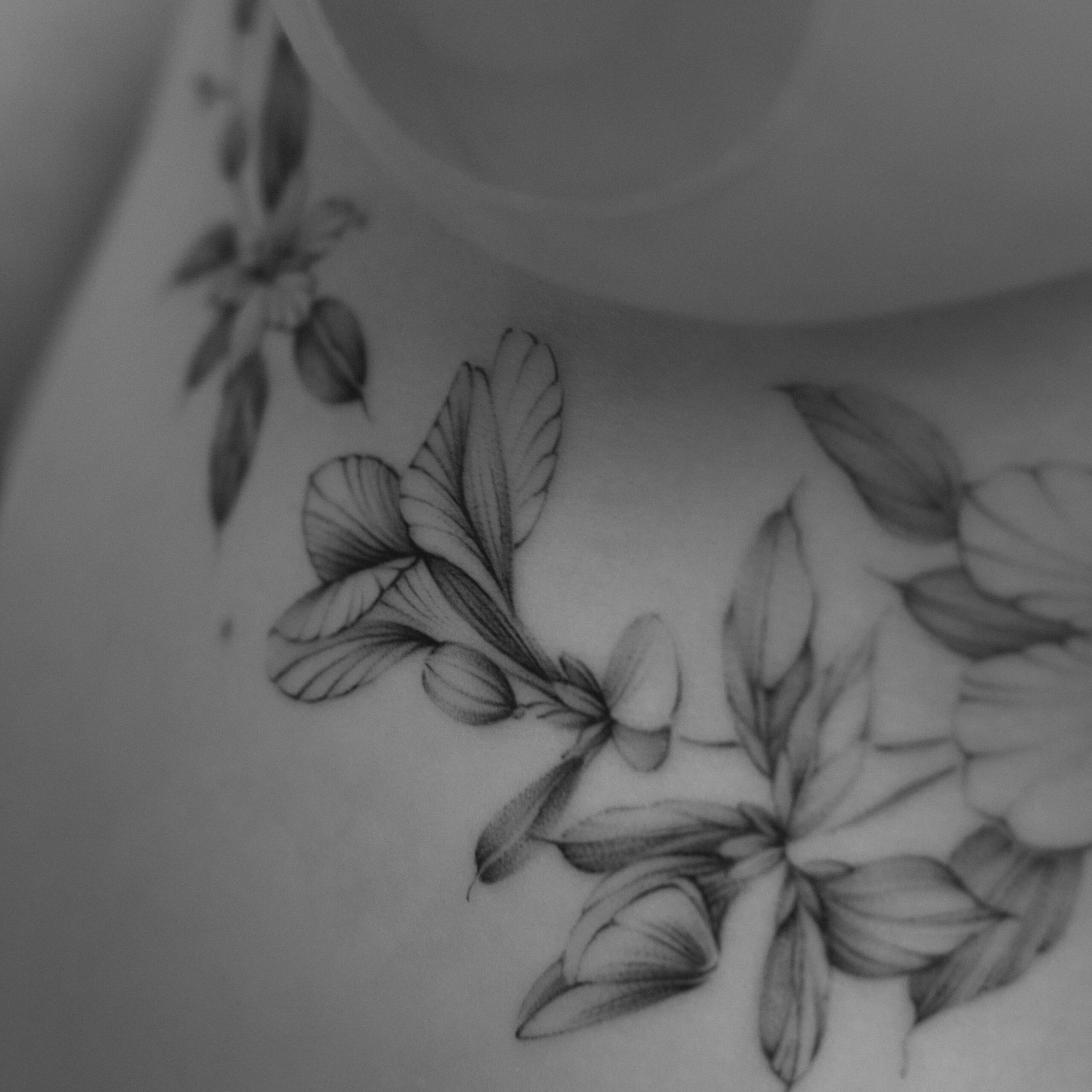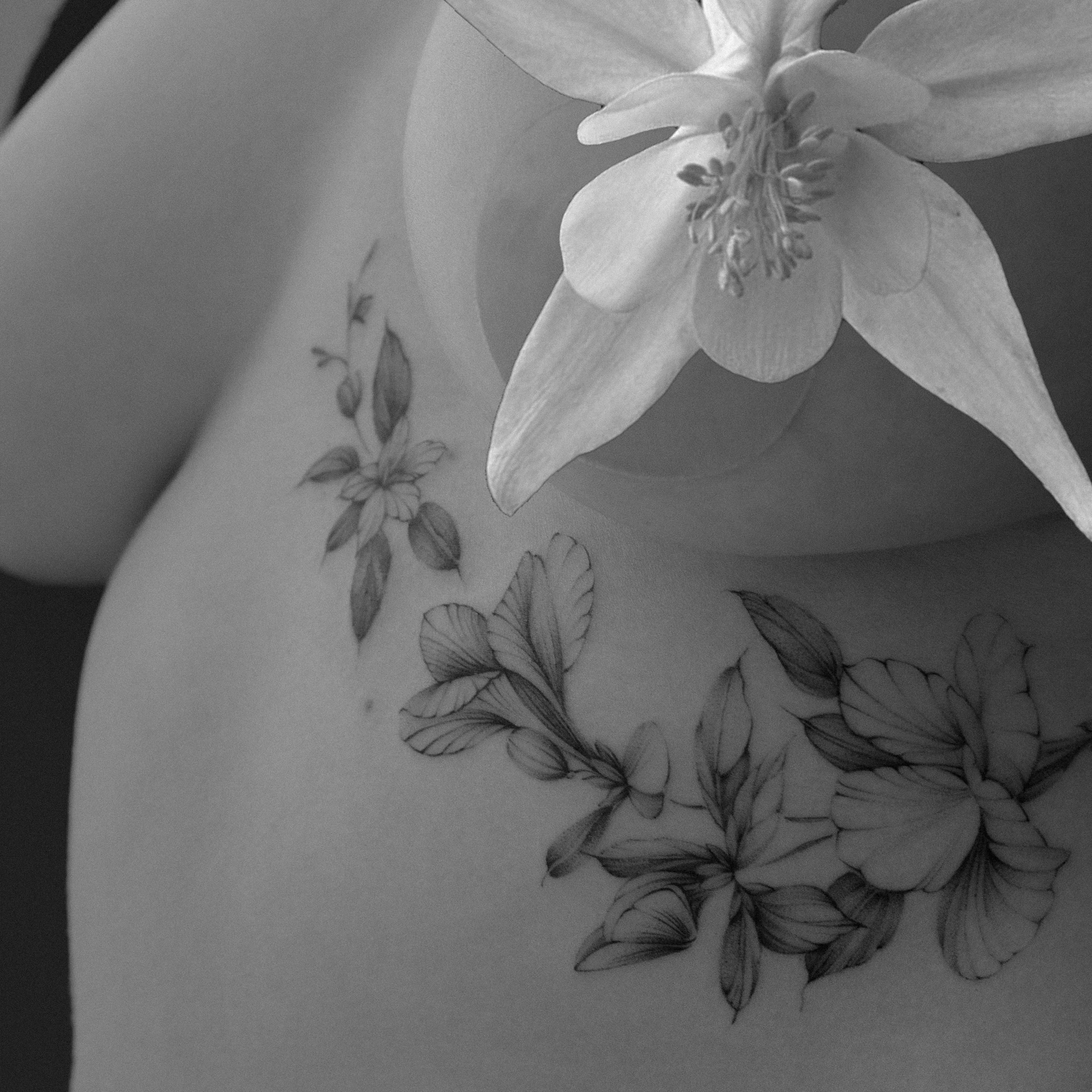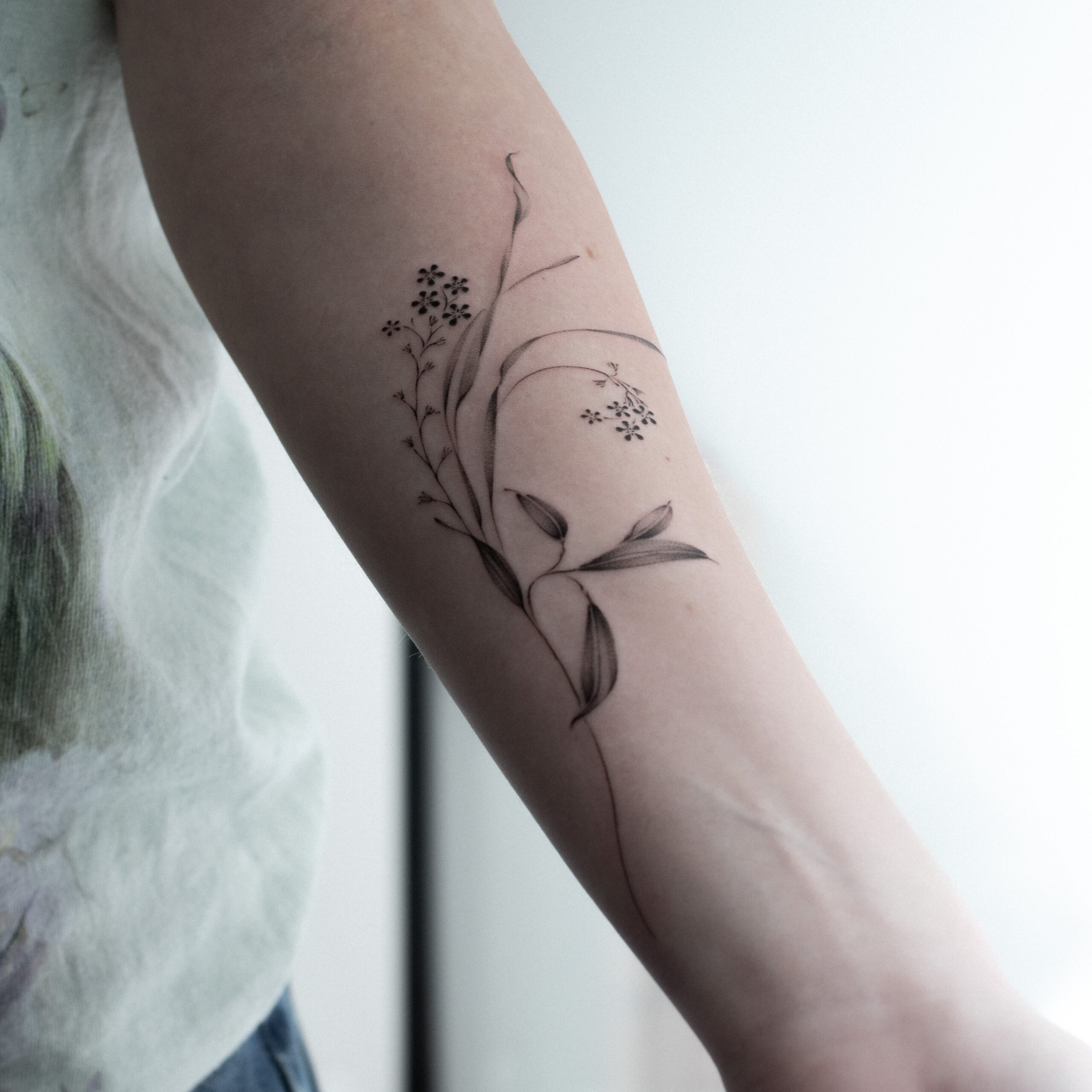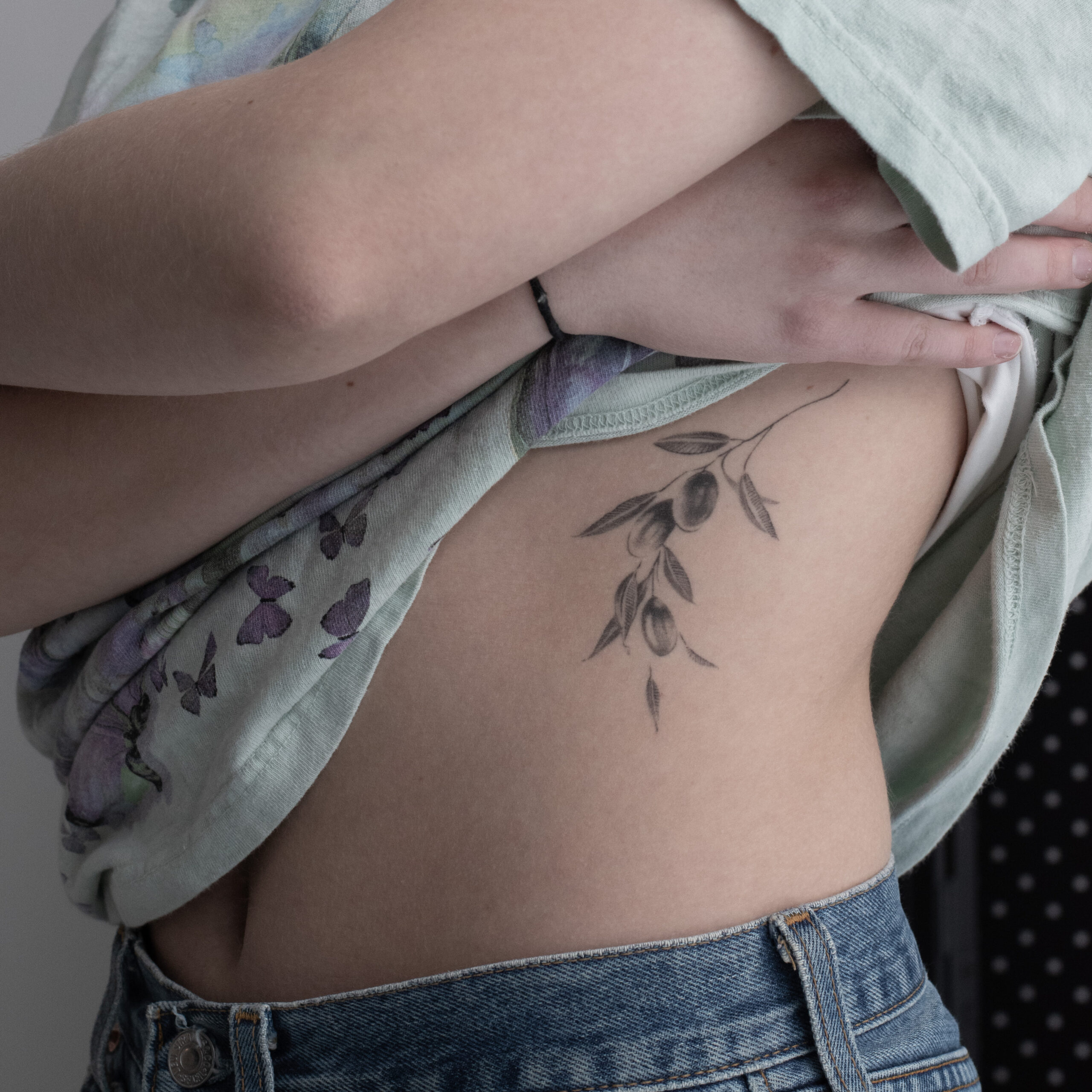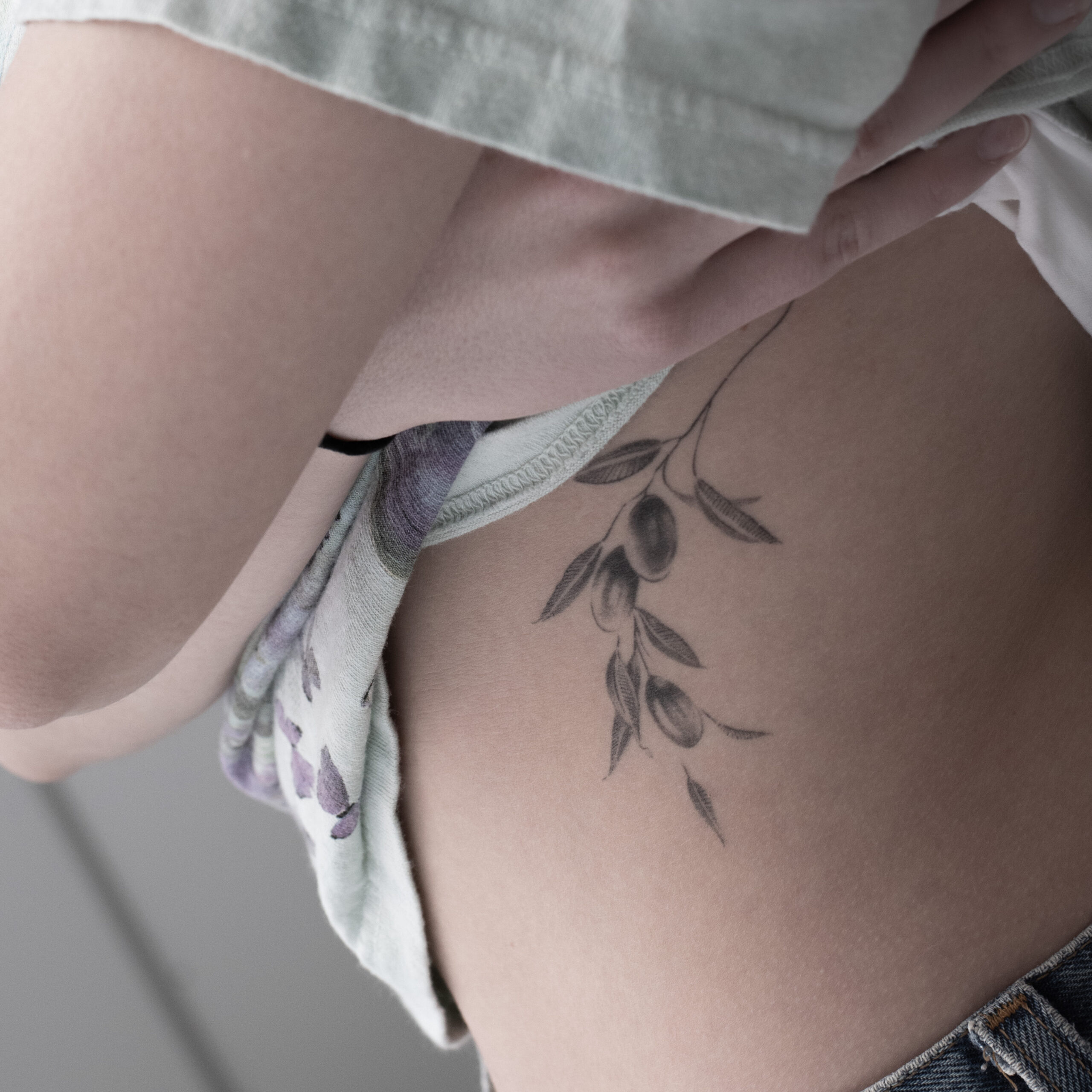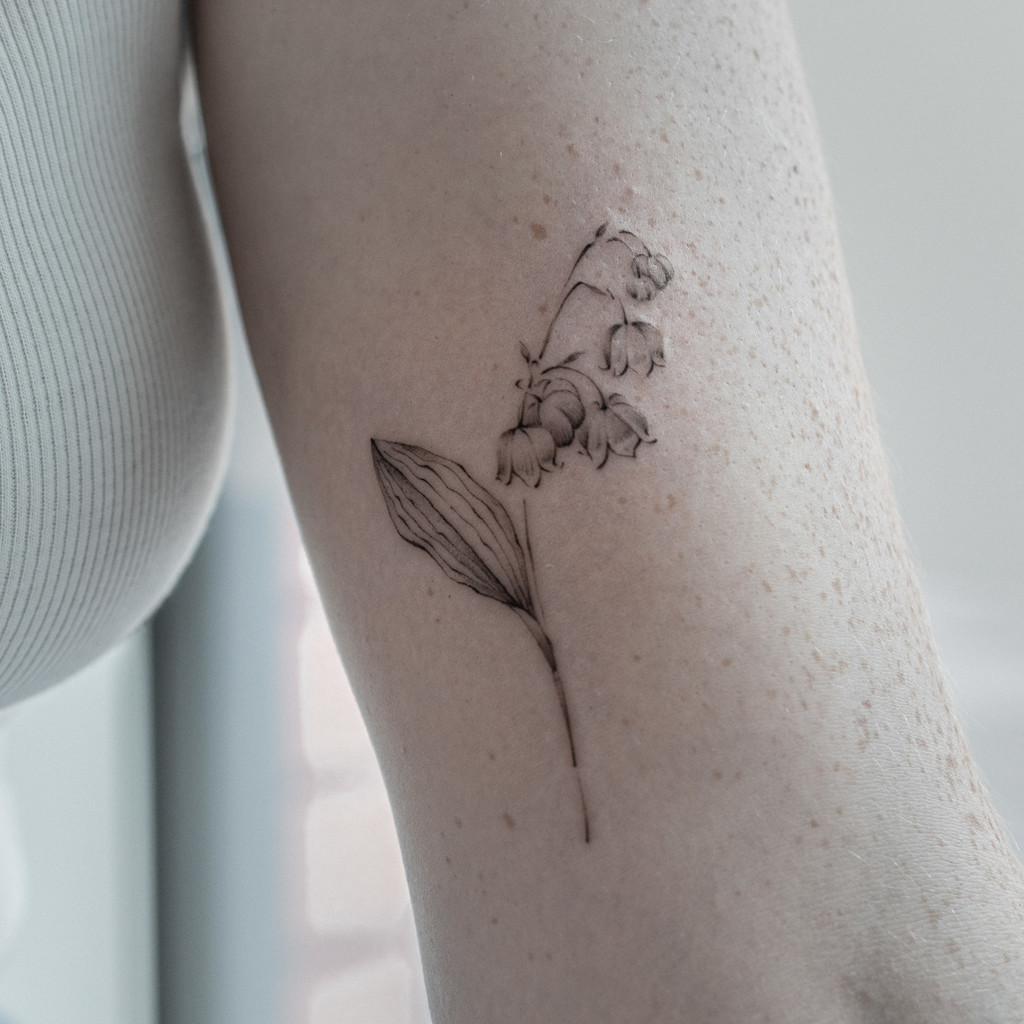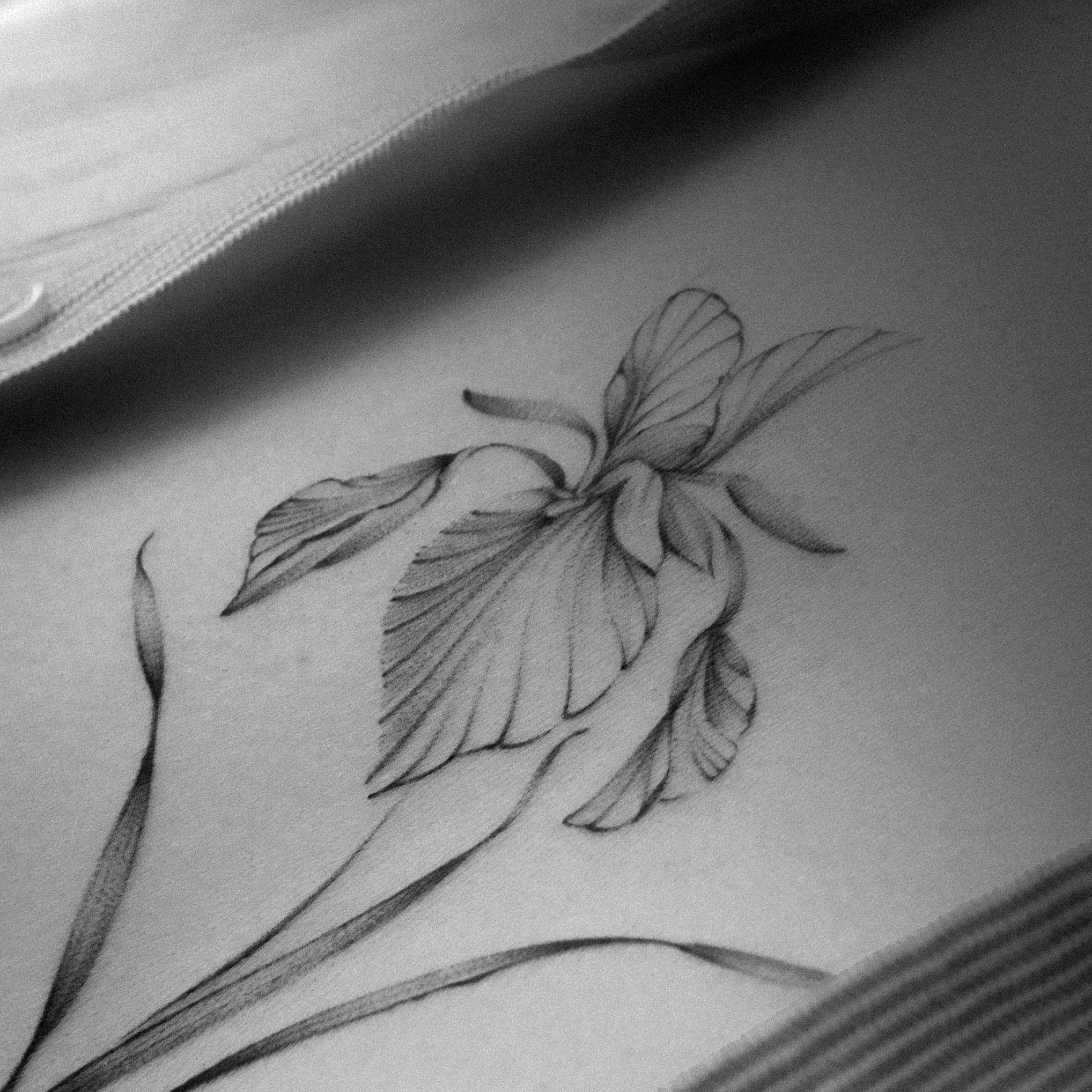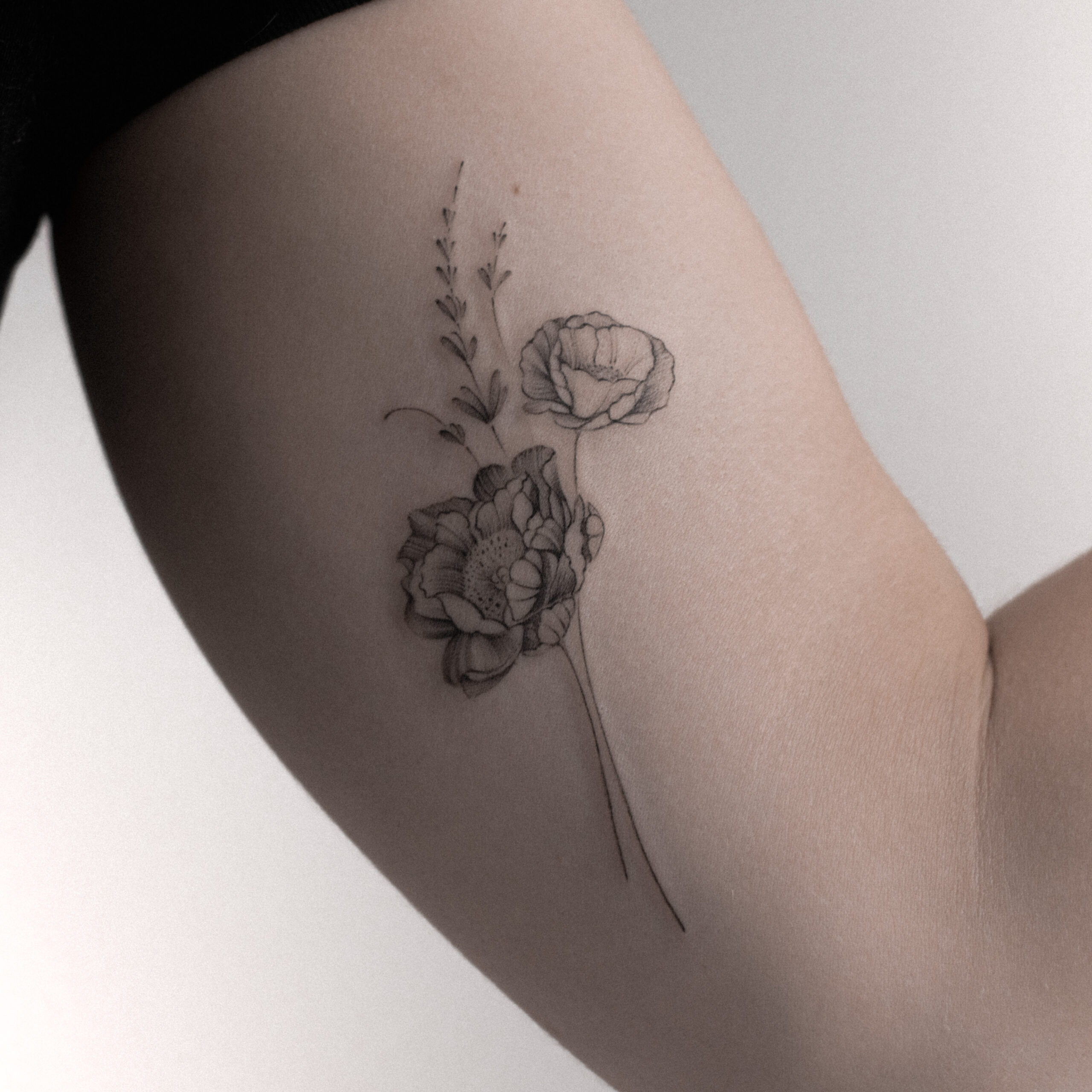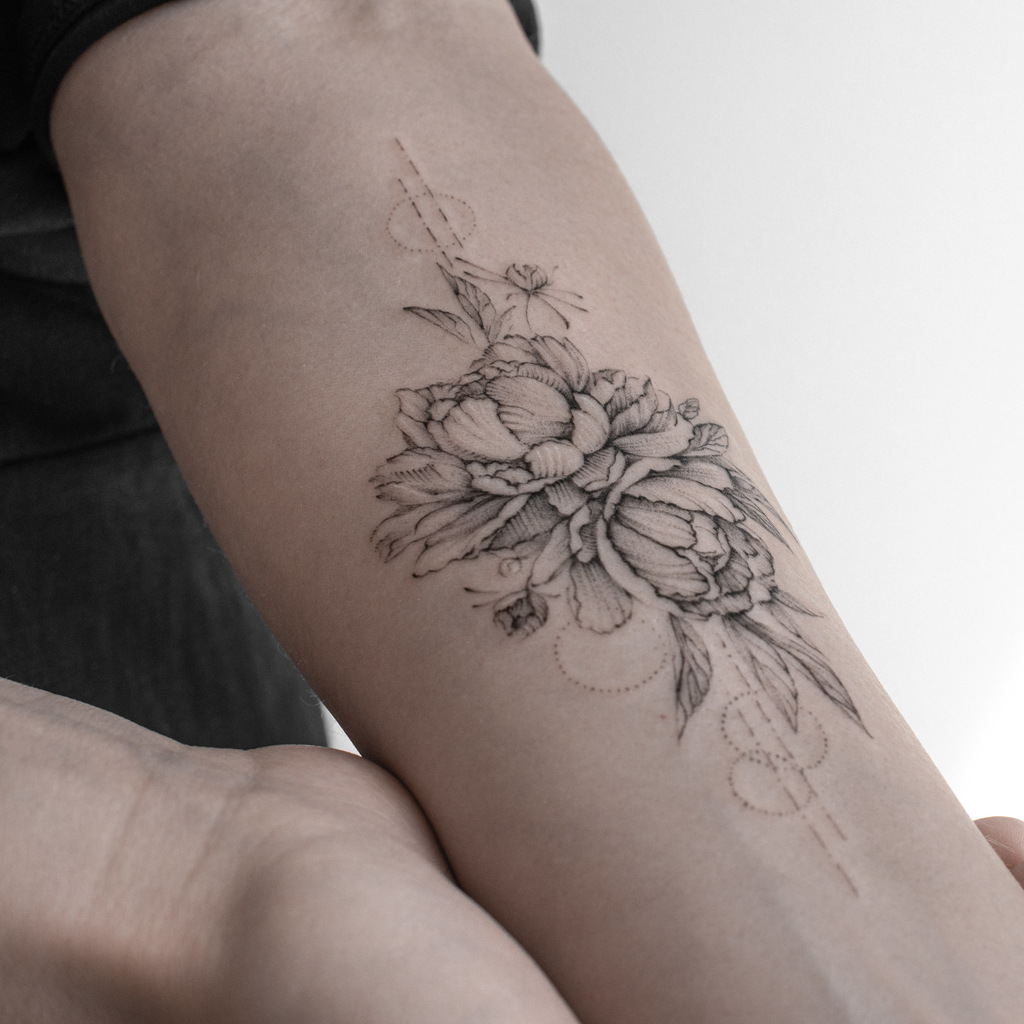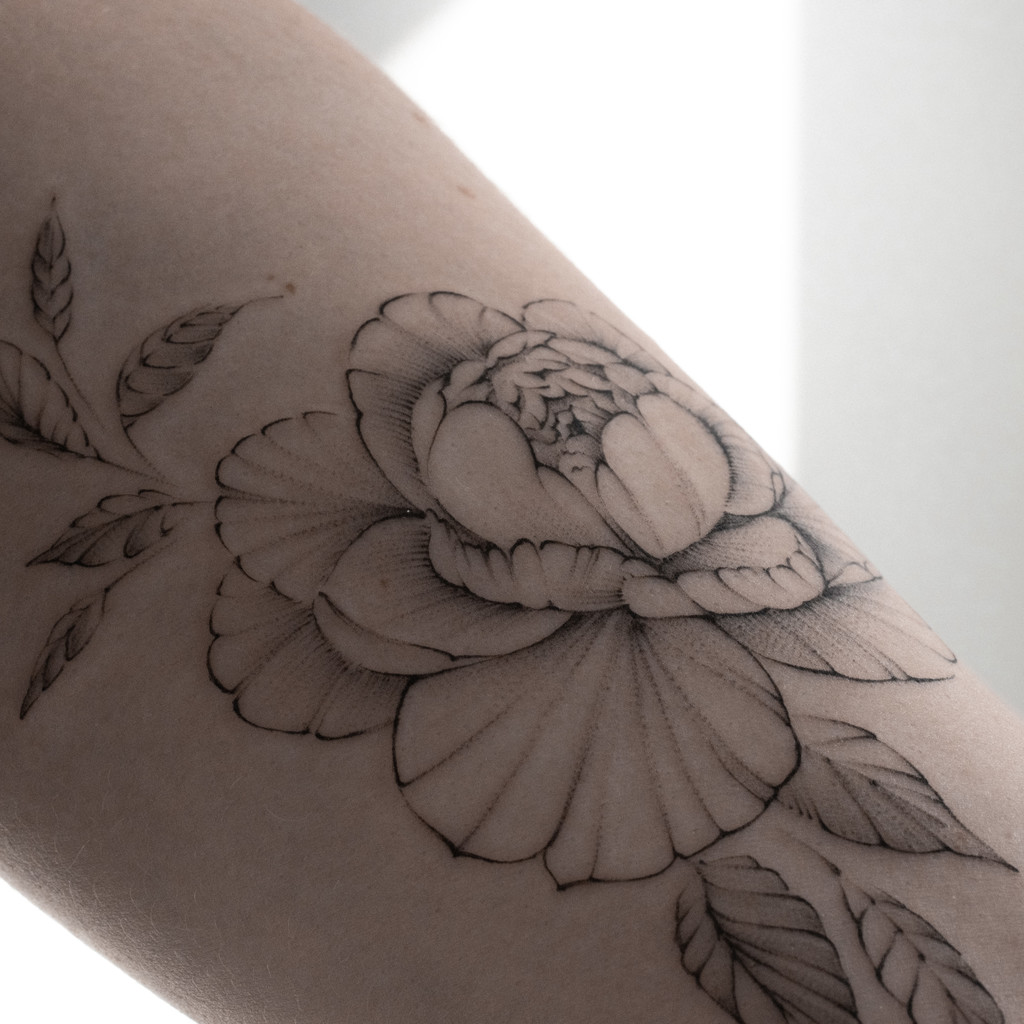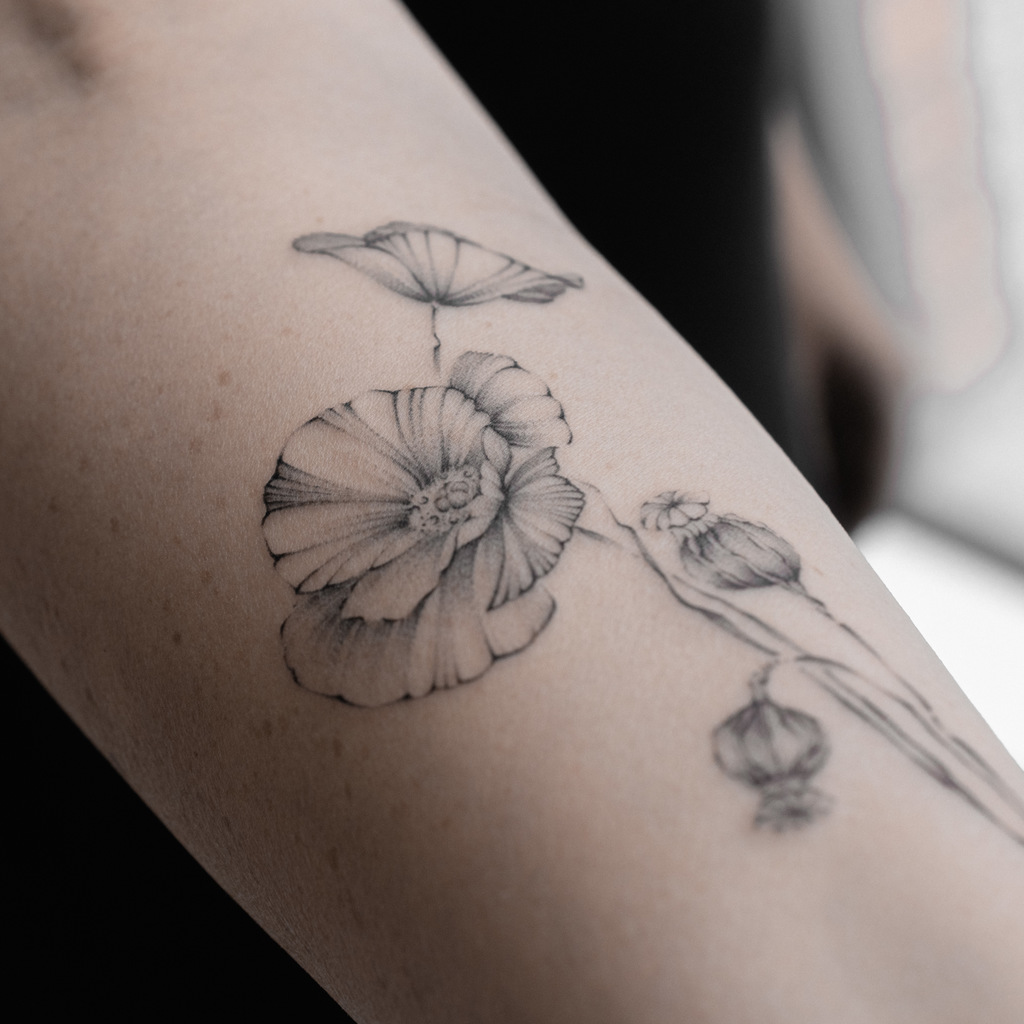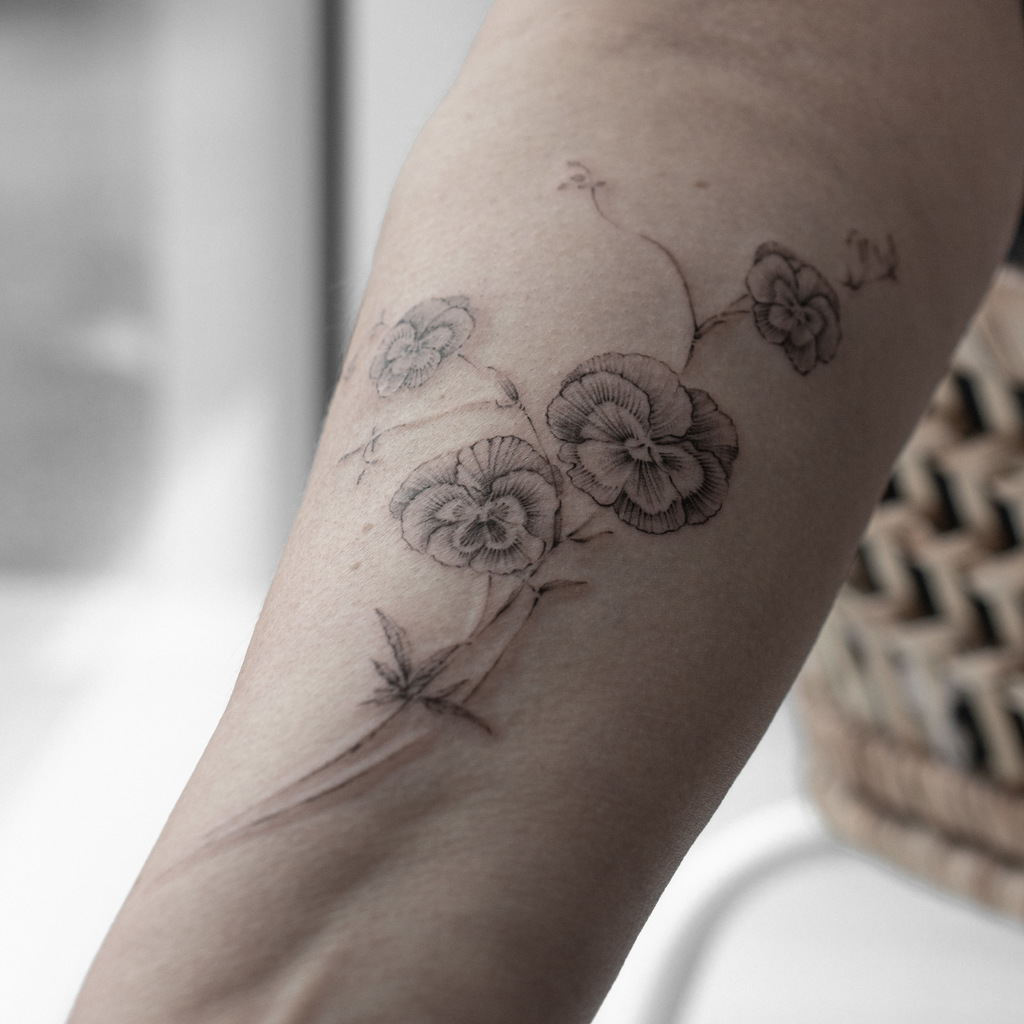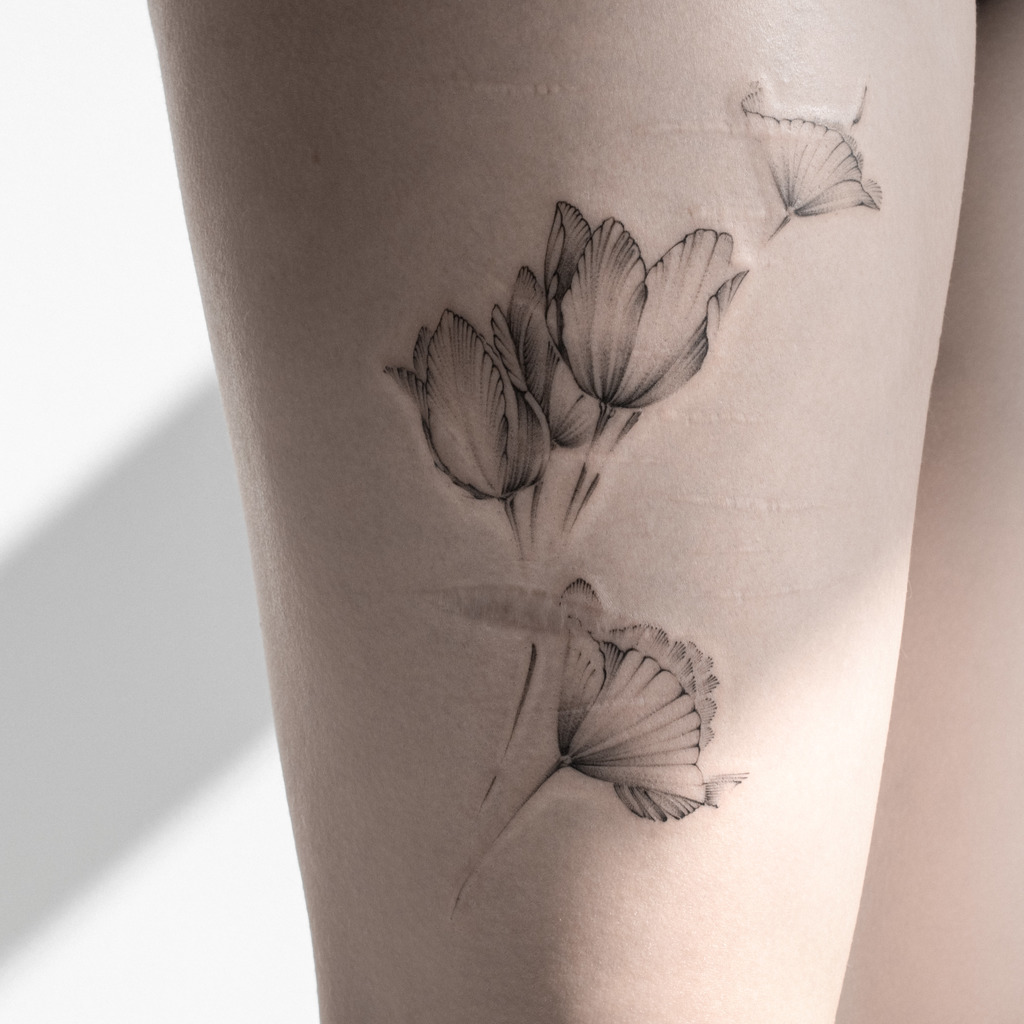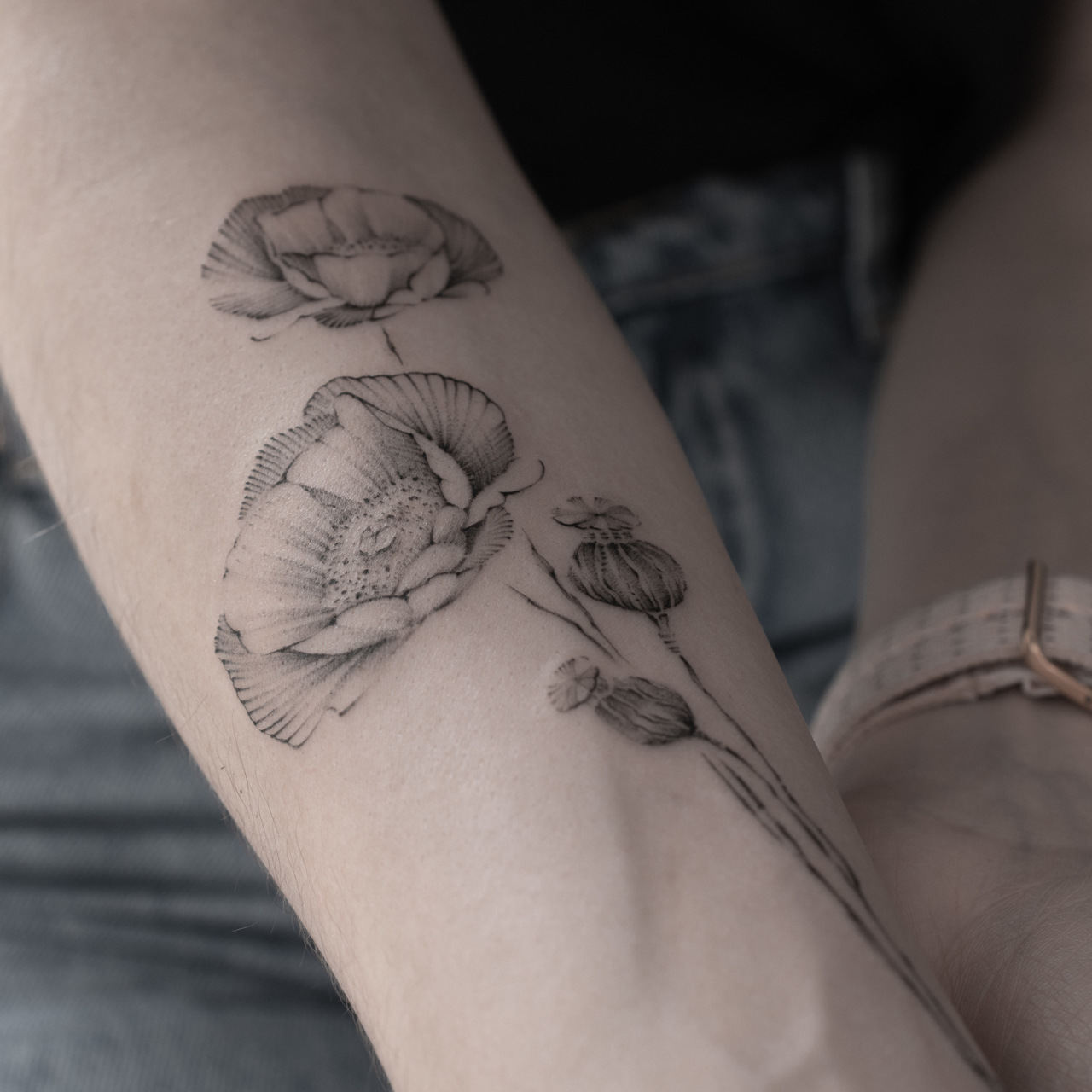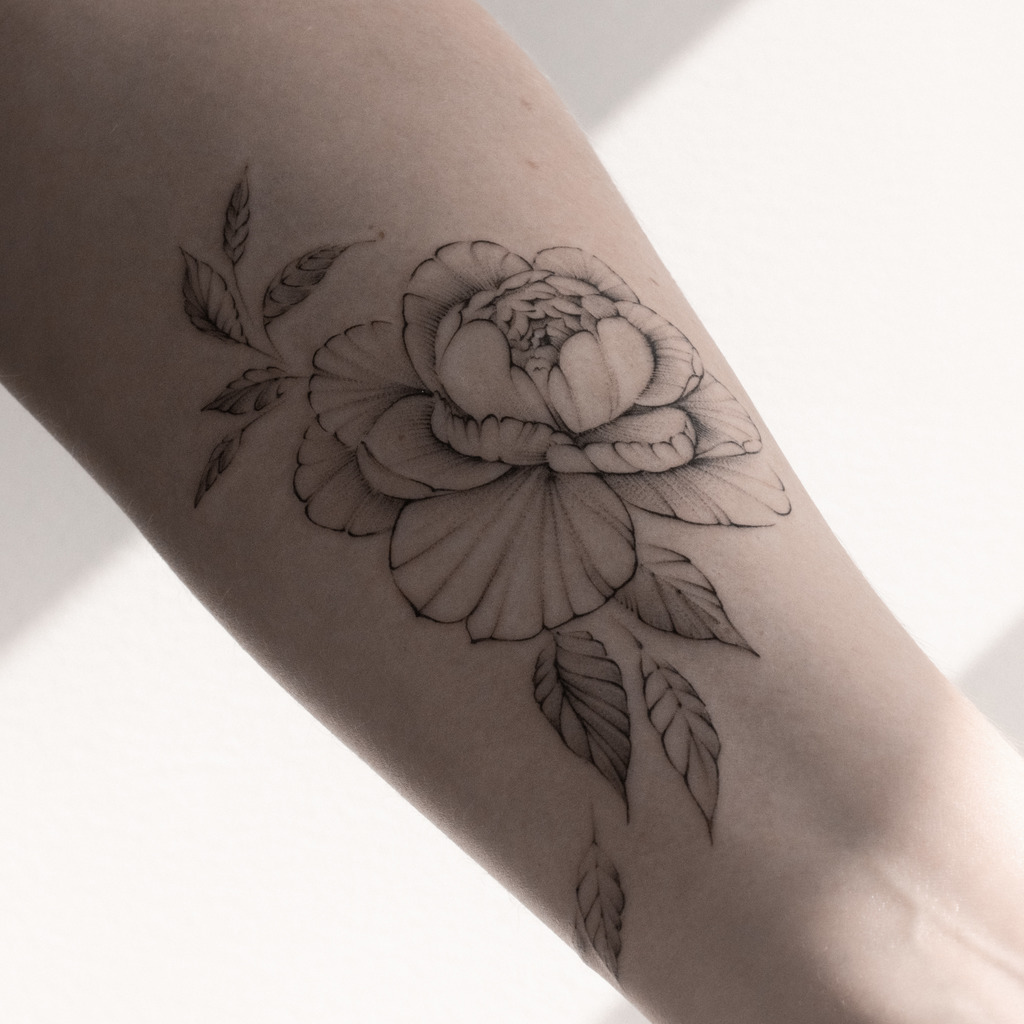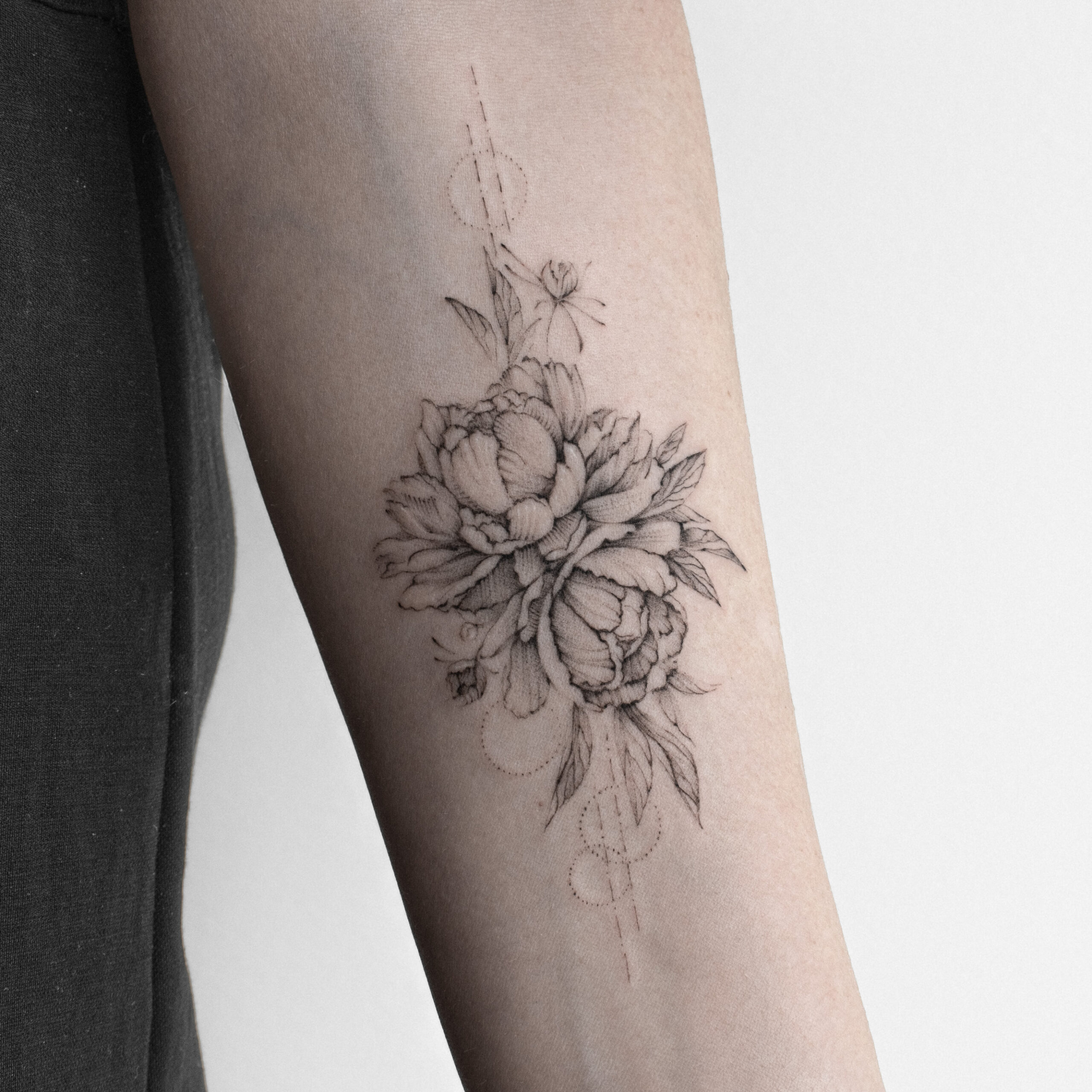
Touch Ups – Podcast Script
Welcome! My name is SIMON Vadelma – I’m a tattoo artist and co-owner of Vadelma Tattoo in Amsterdam. In today’s episode, I’m going to talk about so-called ‘’Touch Ups Appointments’’ I will share with you my perspective and describe how it works at Vadelma Tattoo. I will talk a little about the HISTORY and the potential origin of “touch-ups’’ and show how many factors play a role in the final result of your tattoo. In fact it is not only the tattoo artist – however we play a big role. At the beginning I would like to emphasize that the tattoo artist is equally, and potentially even more interested to make tattoos that are HEALED beautifully. We always do a tattoo with a wonderful end product in mind – and if sometimes it might need a touch up – we’ll meet again and work together on your tattoo, no worries 🙂
PRINTS
You’re listening. You’re watching. But are you supporting? Please visit our art print store at
where you’ll find Natalie’s original artwork – limited edition, museum-quality art prints. In one size only – by design – like in the real paintings. And maybe hit that SUBSCRIBE button too.
A bit of History and my understanding of the Origins of “Touch Ups’’
Well, to talk about the history in terms of tattoos, we should probably go back as far as the first human tribes. The tradition of getting inked is really that old. Archaeological finds like a well-preserved mummy, called Ötzi the ICEMEN — who lived over 5,000 years ago — already had around 60 tattoos – and it’s very likely that even earlier cultures used body art in some way. So, if anyone tells you that making tattoos is a new trend – it is definitely not. Decorating our bodies is rooted in being a human, at least in my opinion – and we have proof of that everywhere, from piercing to plastic surgeries.
But – Let’s focus only on the 20th and 21st centuries.</strong>
Up until around the 1960s or 1970s, tattoos were often rougher, more niche, and mostly associated with certain groups of people — and that’s where – luckily almost dead- stereotypes about tattoos being “only for sailors or prisoners” came from. Back then, no one even thought about getting a touch-up — a tattoo was made as it was made, with the techniques, equipment, and know-how available at the time. Just look at the pictures of traditional tattoos from the 1920s or 1930s and you’ll see what I mean. It was considered finished the moment the tattoo session ended, unless it needed multiple sittings, of course.
Those trends started to shift in the 1980s
— at least in many Western countries — when tattoos slowly began to move into the mainstream, more like we know them today. That cultural shift, helped by musicians, artists, and media visibility, really pushed the development of modern tattooing standards — proper hygiene protocols, better inks, improved aftercare products, machines with more precision, and even brand-new tattoo styles like fine-line or micro-realism. As the client base grew, so did the standards and customer expectations.
Which is always a good thing.
Many people started seeing tattoos as a form of art they wear everyday on their bodies, and wanted to make sure their pieces stayed beautiful for years to come. That’s also when touch-ups became more common. If a client noticed that after healing a part of the tattoo looked a bit lighter or had some blank spots in the lines, another tattoo session would be booked to fill those areas. Even though it’s usually a shorter appointment, in principle it still requires the same procedure, sterilization, and preparation as any other tattoo session. “Touch-ups” are not done with second-grade tools — in essence, it’s a standard tattoo session. And since in our case the canvas is something as organic and alive as human skin, it’s always a good idea to keep contact between the tattoo artist and the client during those first four weeks — which we are doing at VADELMA Tattoo.
That’s typically enough time to see the healed result.
Even if the artist uses the same ink and technique on every client, the outcome can vary depending on skin type, placement, and healing conditions. That;s why it is so hard to predict the final result until it is fully healed. I call it the 50/30/20 Rule It’s a great way to put into perspective what really affects the final result of a tattoo.
- 50% depends on the tattoo artist — their skill, experience, and how well they execute the design.
30% depends on how the client takes care of the tattoo afterwards, and also how well they were prepared beforehand.
We’ve talked about that many times already — preparation and aftercare make a huge difference.
And the last 20% — that’s just the skin itself, and the body’s health condition at that time. Please keep in mind that skin is the body’s biggest organ – it is alive and it is a reflection of many things.
Even if everything was done perfectly, there’s always a chance a tattoo might need a touch-up and it is no one’s fault. Of course, this 50/30/20 RULE< is based on my experience and observation. It’s not a scientifically proven formula — yet. Just something that naturally emerged from working with people and seeing real results.
Touch Ups Policy At Vadelma Tattoo
You’re probably curious how we approach touch-ups in our studio, right? That topic, and many others, are always clearly explained before you even get your tattoo at Vadelma — usually while signing our tattoo agreement, during our email conversations before the session and of course via this Podcast. You can also easily find all this information on our website, either in the FAQ or Blog section. Our touch-up policy is based on common sense, mutual respect, and understanding. As I mentioned earlier, we’ll stay in touch with you for the first four weeks after the tattoo is done. If you notice that you might need a follow-up session, just contact us, send a picture, we will talk about it and then we’ll arrange an appointment for you.
At Vadelma we also have a touch-up fee.
Just keep in mind that the standard fee for a touch-up is valid for up to seven months after the initial session and only within the frame of original design. If you decide to make changes after, let’s say, two years, then of course it will be under different conditions.
That’s it for today!
Thanks so much for watching and listening.
At Vadelma, we really care about transparency and good communication — because in the end, great tattoos are built on trust and teamwork. Art comes to life when it’s received — in tattooing, that moment belongs to the clients, because without them, the tattoo could never exist.
Have a good day and have fun!
Simon
Welcome! My name is SIMON Vadelma – I’m a tattoo artist and co-owner of Vadelma Tattoo in Amsterdam. In today’s episode, I’m going to talk about so-called ‘’Touch Ups Appointments’’ I will share with you my perspective and describe how it works at Vadelma Tattoo. I will talk a little about the HISTORY and the potential origin of “touch-ups’’ and show how many factors play a role in the final result of your tattoo. In fact it is not only the tattoo artist – however we play a big role. At the beginning I would like to emphasize that the tattoo artist is equally, and potentially even more interested to make tattoos that are HEALED beautifully. We always do a tattoo with a wonderful end product in mind – and if sometimes it might need a touch up – we’ll meet again and work together on your tattoo, no worries 🙂
PRINTS
You’re listening. You’re watching. But are you supporting? Please visit our art print store at
where you’ll find Natalie’s original artwork – limited edition, museum-quality art prints. In one size only – by design – like in the real paintings. And maybe hit that SUBSCRIBE button too.
A bit of History and my understanding of the Origins of “Touch Ups’’
Well, to talk about the history in terms of tattoos, we should probably go back as far as the first human tribes. The tradition of getting inked is really that old. Archaeological finds like a well-preserved mummy, called Ötzi the ICEMEN — who lived over 5,000 years ago — already had around 60 tattoos – and it’s very likely that even earlier cultures used body art in some way. So, if anyone tells you that making tattoos is a new trend – it is definitely not. Decorating our bodies is rooted in being a human, at least in my opinion – and we have proof of that everywhere, from piercing to plastic surgeries.
But – Let’s focus only on the 20th and 21st centuries.&lt;/strong>
Up until around the 1960s or 1970s, tattoos were often rougher, more niche, and mostly associated with certain groups of people — and that’s where – luckily almost dead- stereotypes about tattoos being “only for sailors or prisoners” came from. Back then, no one even thought about getting a touch-up — a tattoo was made as it was made, with the techniques, equipment, and know-how available at the time. Just look at the pictures of traditional tattoos from the 1920s or 1930s and you’ll see what I mean. It was considered finished the moment the tattoo session ended, unless it needed multiple sittings, of course.
Those trends started to shift in the 1980s
— at least in many Western countries — when tattoos slowly began to move into the mainstream, more like we know them today. That cultural shift, helped by musicians, artists, and media visibility, really pushed the development of modern tattooing standards — proper hygiene protocols, better inks, improved aftercare products, machines with more precision, and even brand-new tattoo styles like fine-line or micro-realism. As the client base grew, so did the standards and customer expectations.
Which is always a good thing.
Many people started seeing tattoos as a form of art they wear everyday on their bodies, and wanted to make sure their pieces stayed beautiful for years to come. That’s also when touch-ups became more common. If a client noticed that after healing a part of the tattoo looked a bit lighter or had some blank spots in the lines, another tattoo session would be booked to fill those areas. Even though it’s usually a shorter appointment, in principle it still requires the same procedure, sterilization, and preparation as any other tattoo session. “Touch-ups” are not done with second-grade tools — in essence, it’s a standard tattoo session. And since in our case the canvas is something as organic and alive as human skin, it’s always a good idea to keep contact between the tattoo artist and the client during those first four weeks — which we are doing at VADELMA Tattoo.
That’s typically enough time to see the healed result.
Even if the artist uses the same ink and technique on every client, the outcome can vary depending on skin type, placement, and healing conditions. That;s why it is so hard to predict the final result until it is fully healed. I call it the 50/30/20 Rule It’s a great way to put into perspective what really affects the final result of a tattoo.
- 50% depends on the tattoo artist — their skill, experience, and how well they execute the design.
30% depends on how the client takes care of the tattoo afterwards, and also how well they were prepared beforehand.
We’ve talked about that many times already — preparation and aftercare make a huge difference.
And the last 20% — that’s just the skin itself, and the body’s health condition at that time. Please keep in mind that skin is the body’s biggest organ – it is alive and it is a reflection of many things.
Even if everything was done perfectly, there’s always a chance a tattoo might need a touch-up and it is no one’s fault. Of course, this 50/30/20 RULE< is based on my experience and observation. It’s not a scientifically proven formula — yet. Just something that naturally emerged from working with people and seeing real results.
Touch Ups Policy At Vadelma Tattoo
You’re probably curious how we approach touch-ups in our studio, right? That topic, and many others, are always clearly explained before you even get your tattoo at Vadelma — usually while signing our tattoo agreement, during our email conversations before the session and of course via this Podcast. You can also easily find all this information on our website, either in the FAQ or Blog section. Our touch-up policy is based on common sense, mutual respect, and understanding. As I mentioned earlier, we’ll stay in touch with you for the first four weeks after the tattoo is done. If you notice that you might need a follow-up session, just contact us, send a picture, we will talk about it and then we’ll arrange an appointment for you.
At Vadelma we also have a touch-up fee.
Just keep in mind that the standard fee for a touch-up is valid for up to seven months after the initial session and only within the frame of original design. If you decide to make changes after, let’s say, two years, then of course it will be under different conditions.
That’s it for today!
Thanks so much for watching and listening.
At Vadelma, we really care about transparency and good communication — because in the end, great tattoos are built on trust and teamwork. Art comes to life when it’s received — in tattooing, that moment belongs to the clients, because without them, the tattoo could never exist.
Have a good day and have fun!
Simon

